-

Technology and Empire
The industrial revolution in Europe had given the West an immense advantage throughout the world in weaponry, shipping, invention, and health. This advantage would last until air transport and the potential for atomic warfare again changed, by a quantum leap, the technological distance between societies, forcing a new formulation of the definitions of world power.
-
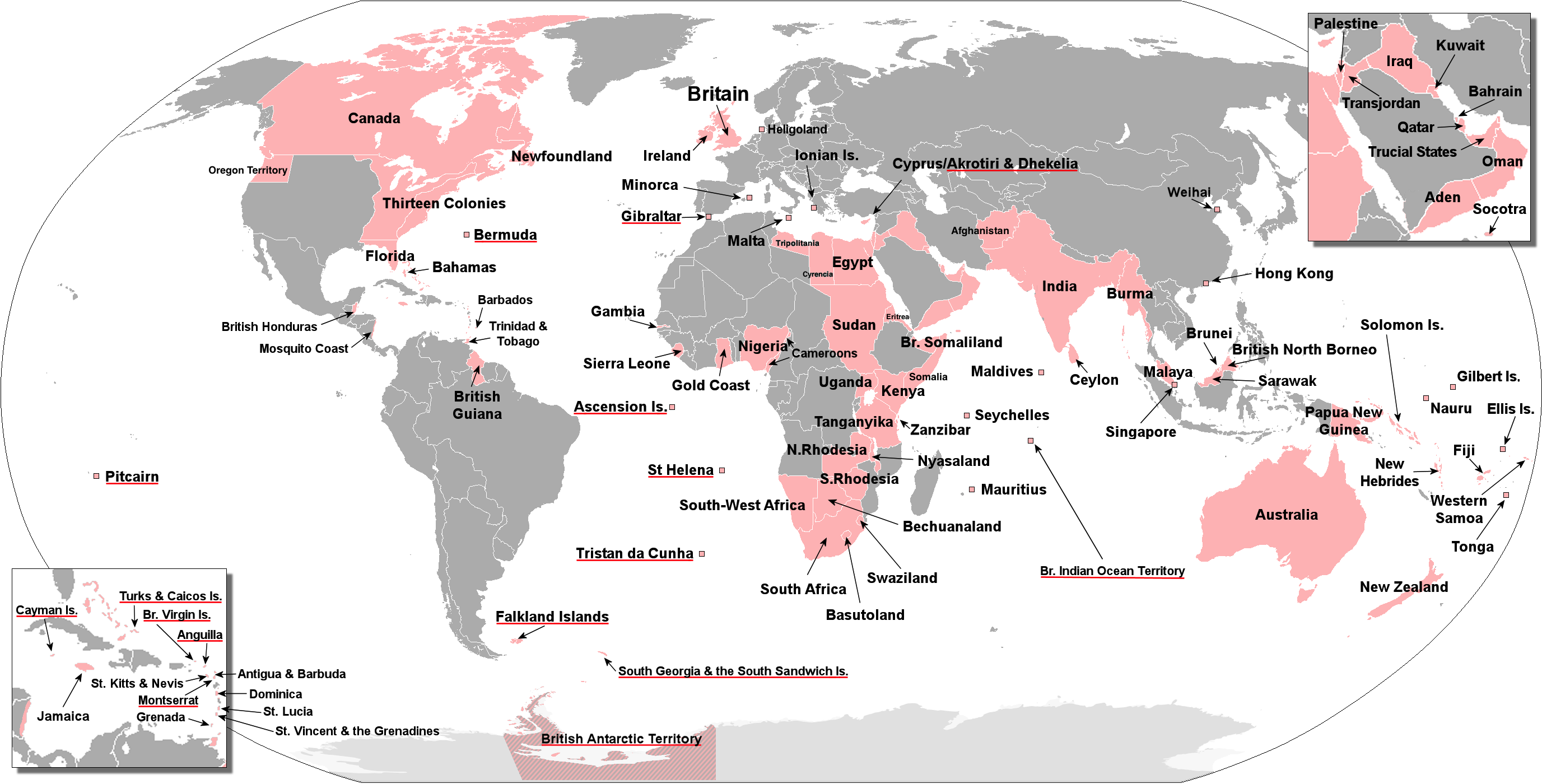
The British Empire | Modern Empires and Imperialism
By 1815 the British recognized that colonies occupied largely by settlers from the British Isles would most likely move toward independence, and therefore they sought to control the pace and nature of this movement in order to assure continued loyalty to the concept of a Greater Britain. The colonies of settlement were originally rather thinly…
-
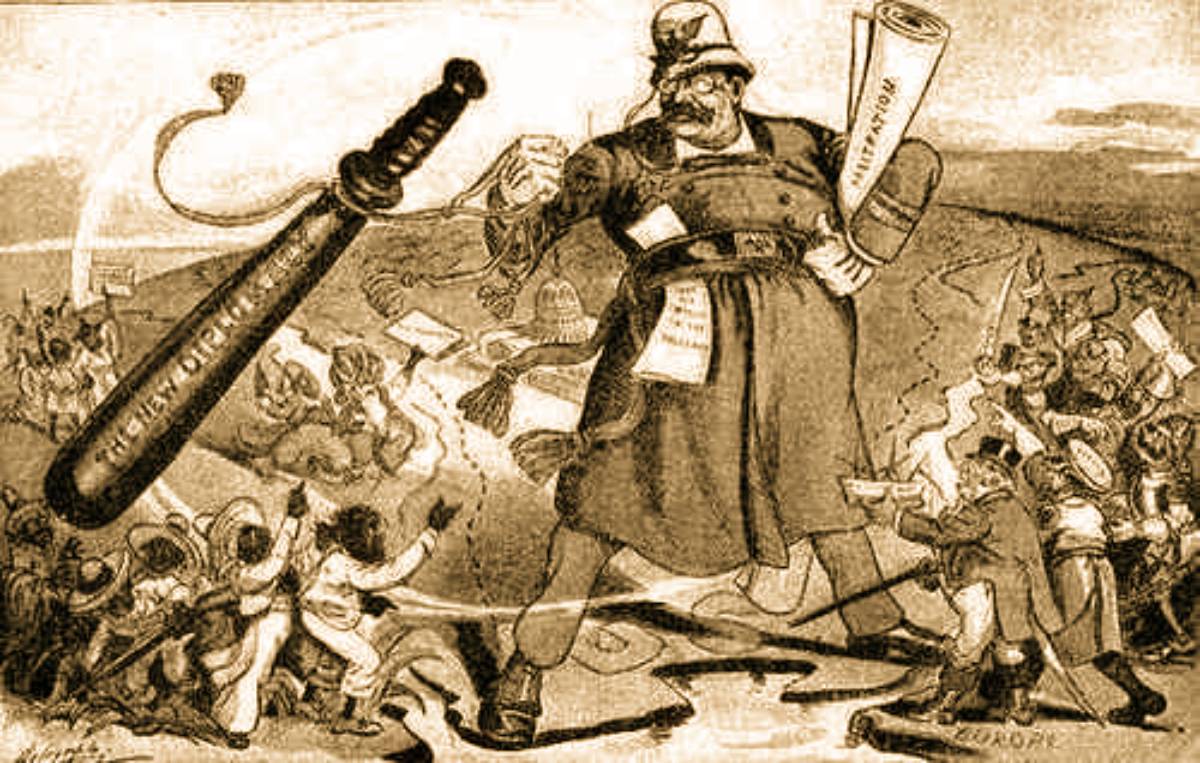
The New Imperialism, 1870-1931 | Modern Empires and Imperialism
The industrial revolution had led to a demand for goods aimed at specific markets and appealing to national fashions. Higher-quality goods made for a critical market required European control over the processes of manufacture, over methods of planting and cultivation, over port facilities, storage depots, communications systems, and even local finance. Home industries often related…
-
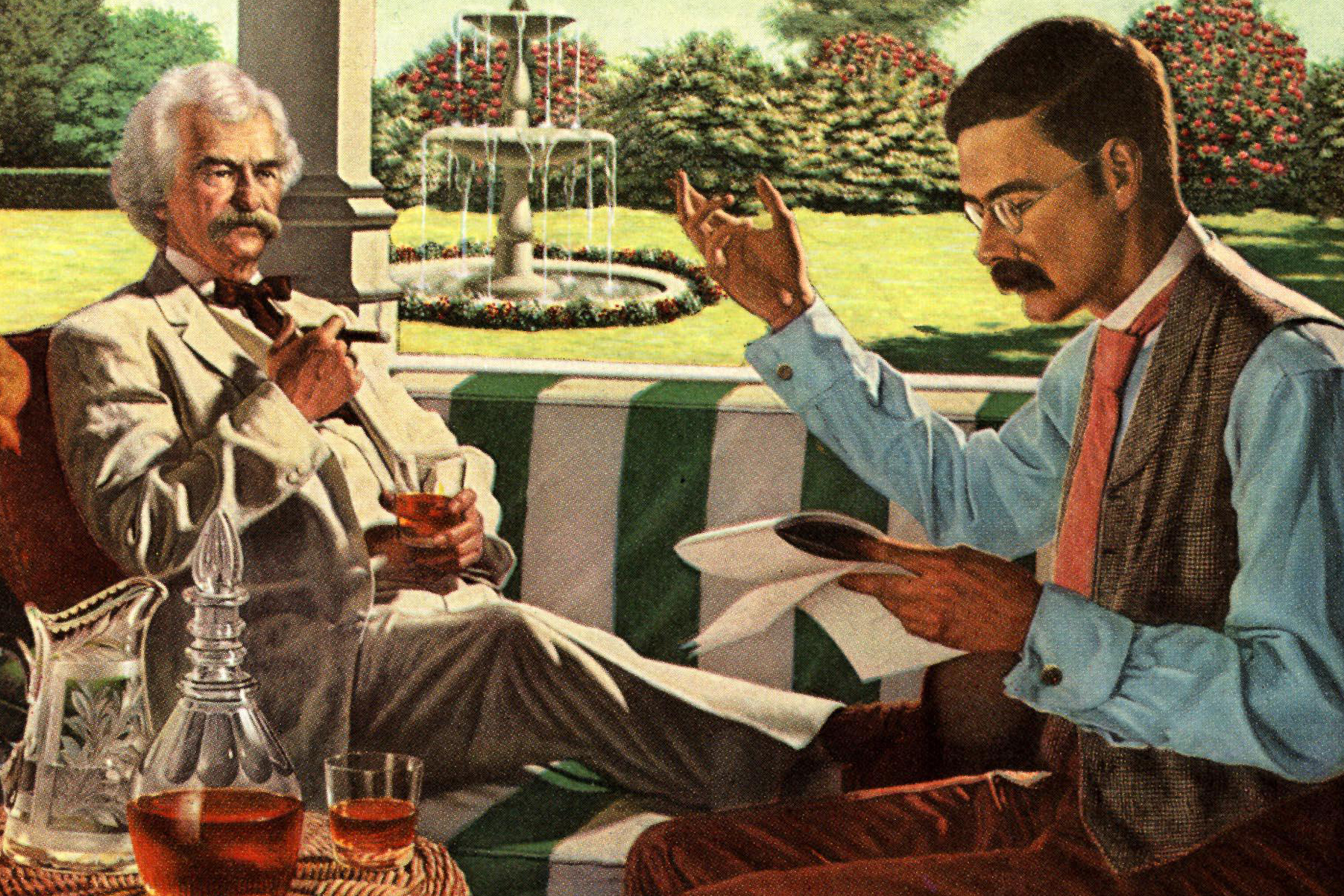
Rudyard Kipling’s View of Imperialism
Many were pleased to be called imperialists, determined to “take up the White Man’s burden … To seek another’s profit. And work another’s gain.” In the words of the poet laureate of empire, Rudyard Kipling (1865-1936), the United States too must Take up the White Man’s burden— Send forth the best ye breed— Go bind…
-
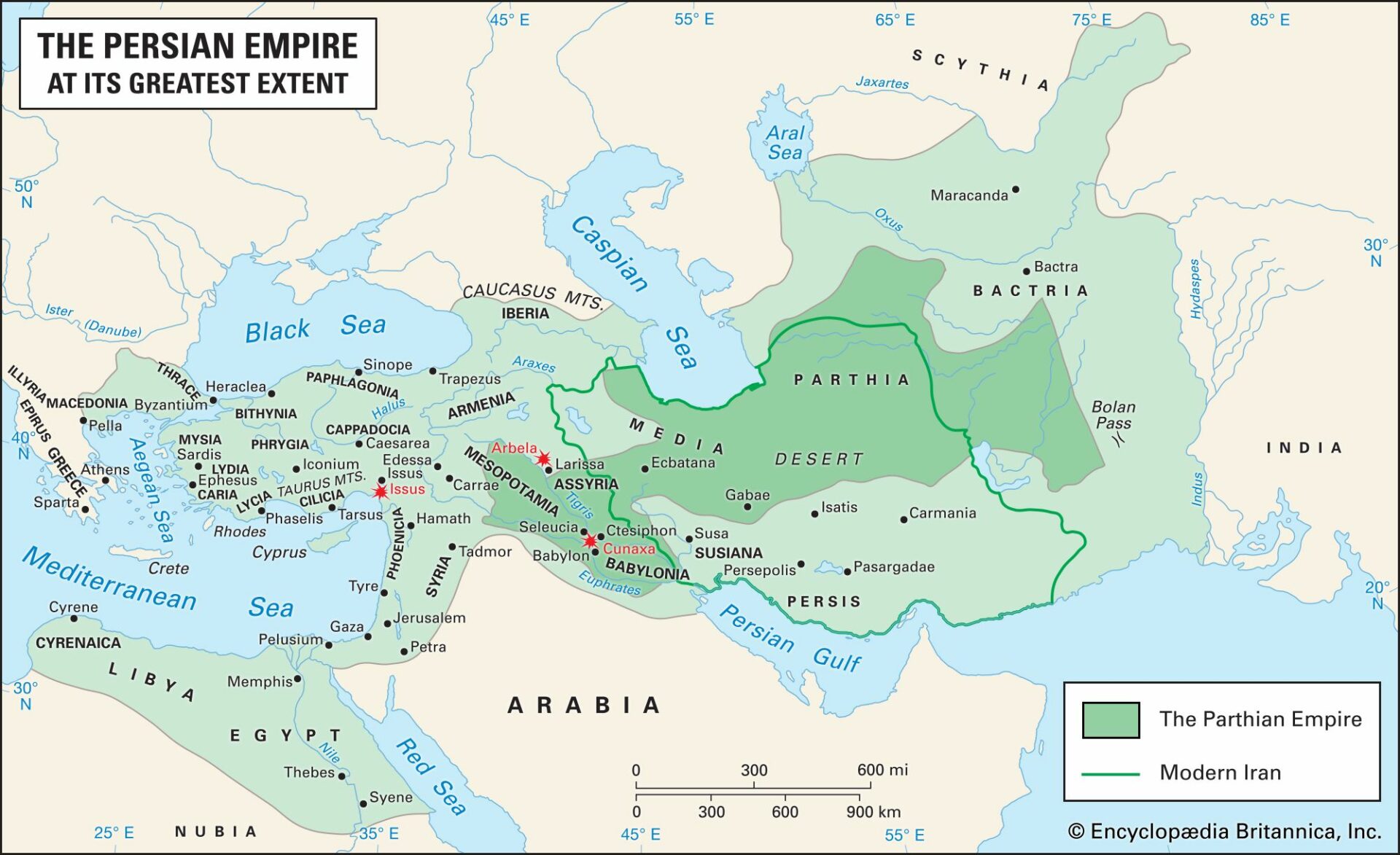
Motives for Empire | Modern Empires and Imperialism
Between 1800 and roughly 1870 European nations acquired new territories mainly from other European powers. Britain rested its continuing ascendancy upon sea power, and those colonies it kept after victories over Continental nations were retained largely for strategic reasons, such as the need to protect the sea route to India and the Far East.
-
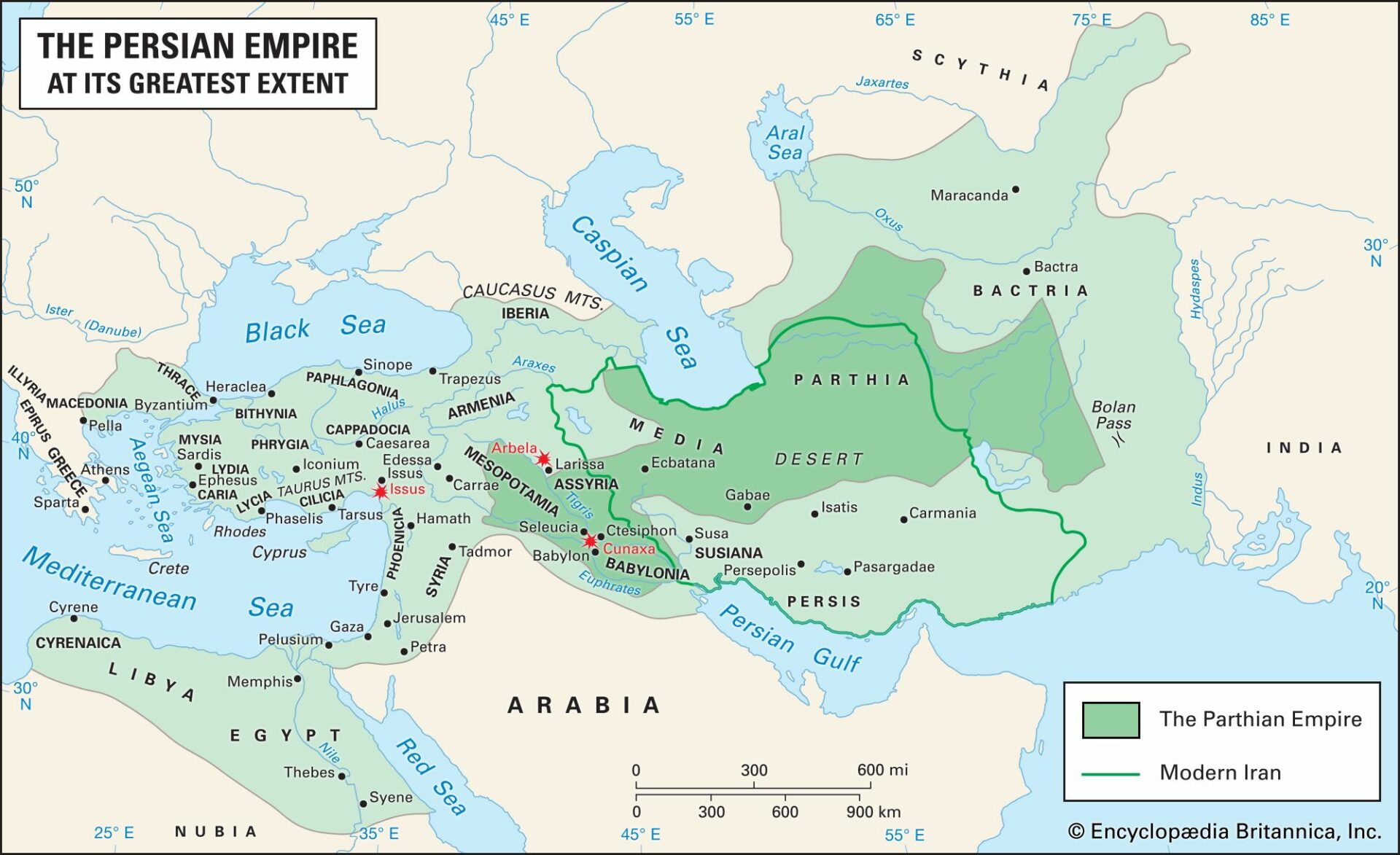
The Great Modern Empires and the Question of Imperialism | Modern Empires and Imperialism
The transition from modern to what some scholars refer to as postmodern history is marked by the rise and collapse of the great modern empires. The age of maritime exploration and early colonialism had knit the globe together into one intellectual construct; the age of imperialism would give political and economic reality to this set…
-
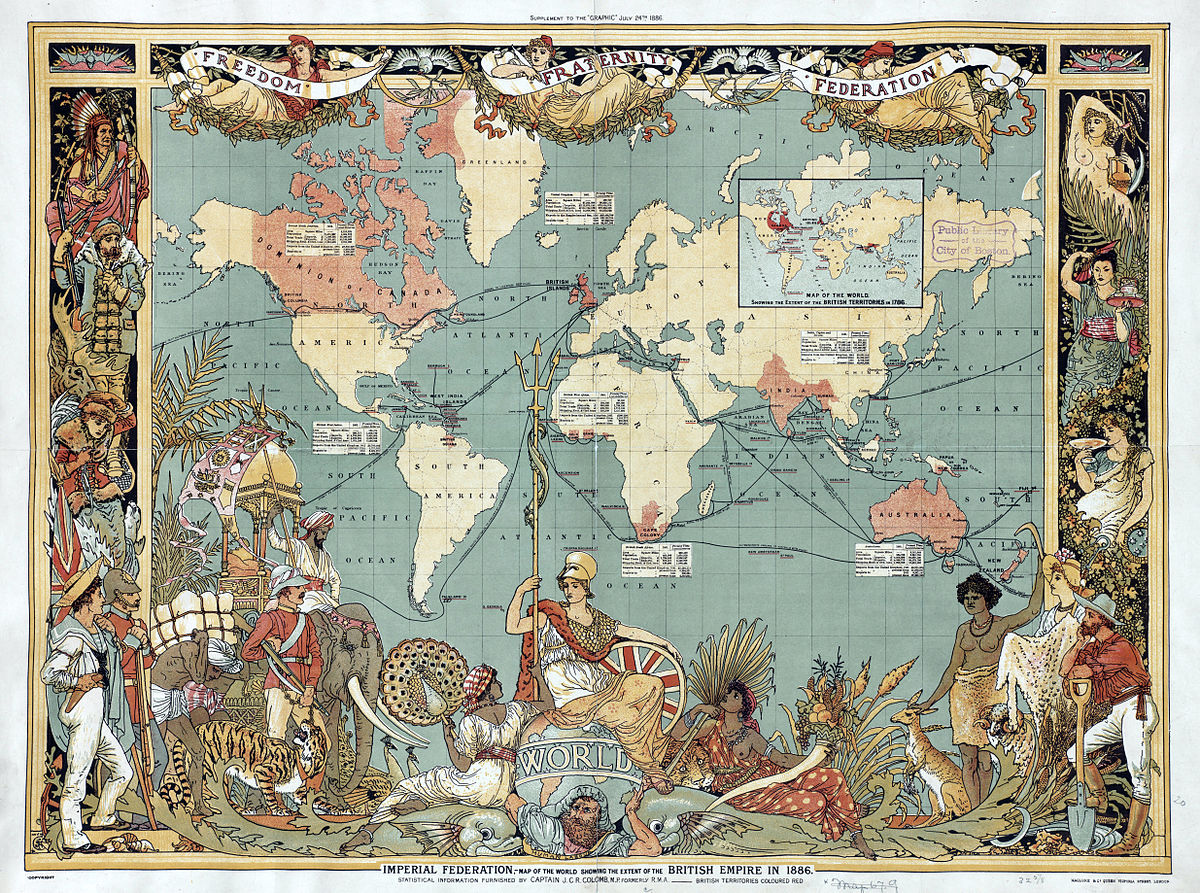
An Imperial Issue Close to Home: The Irish Question | Modern Empires and Imperialism
As in eastern Europe, a nationality problem peculiar to Britain grew more acute near the end of the nineteenth century. This was “the Irish problem,” as the English called it. The English, and the Scots who came to settle in the northern Irish province of Ulster in the sixteenth and seventeenth centuries, had remained as…
-
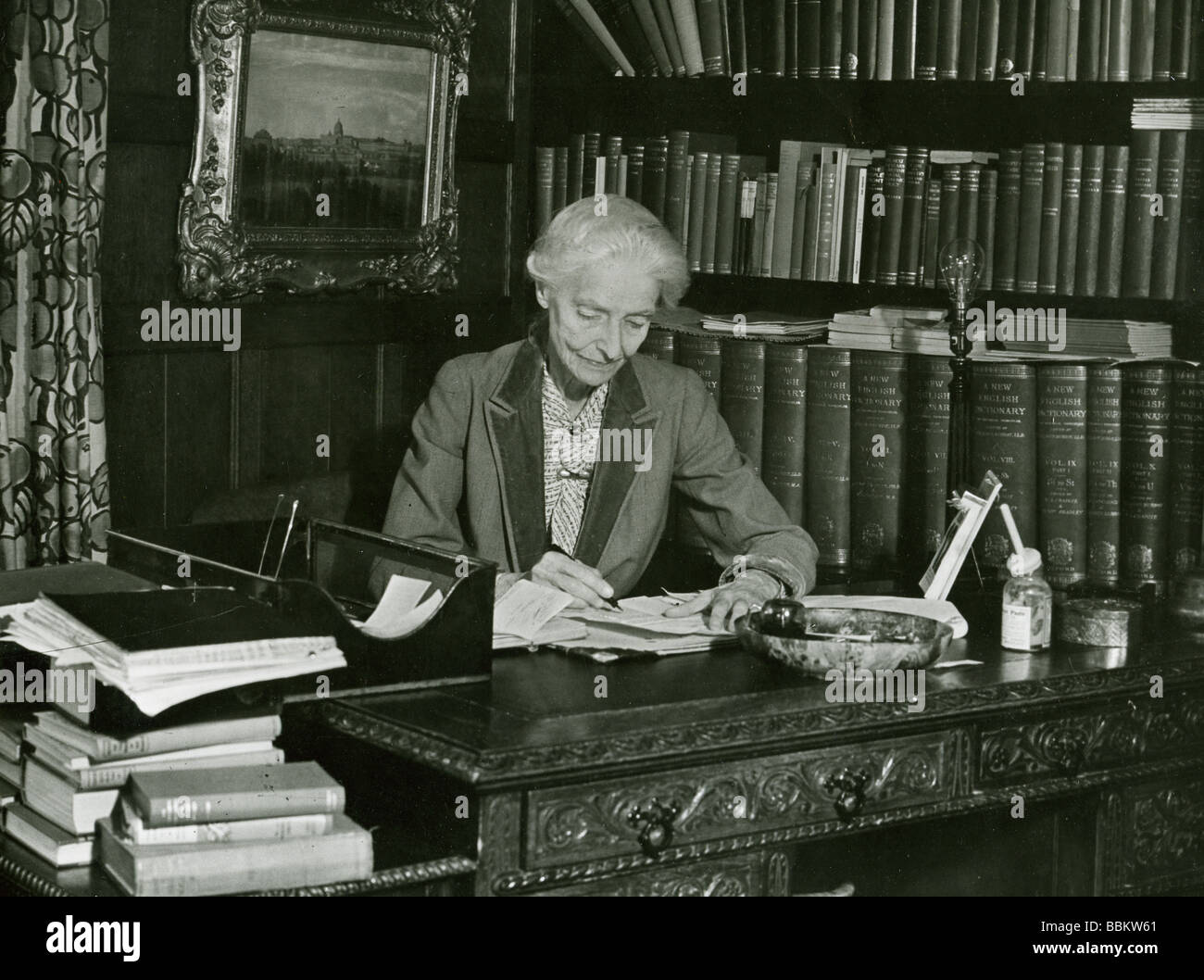
Beatrice Webb on "Why I Became a Socialist"
One of the leading intellectuals in the socialist movement in Britain was Beatrice Potter, who became the wife of the Fabian socialist and administrator Sidney Webb. In My Apprenticeship she addressed the question, “Why I Became a Socialist.” Can I describe in a few sentences the successive steps in my progress towards Socialism?
-
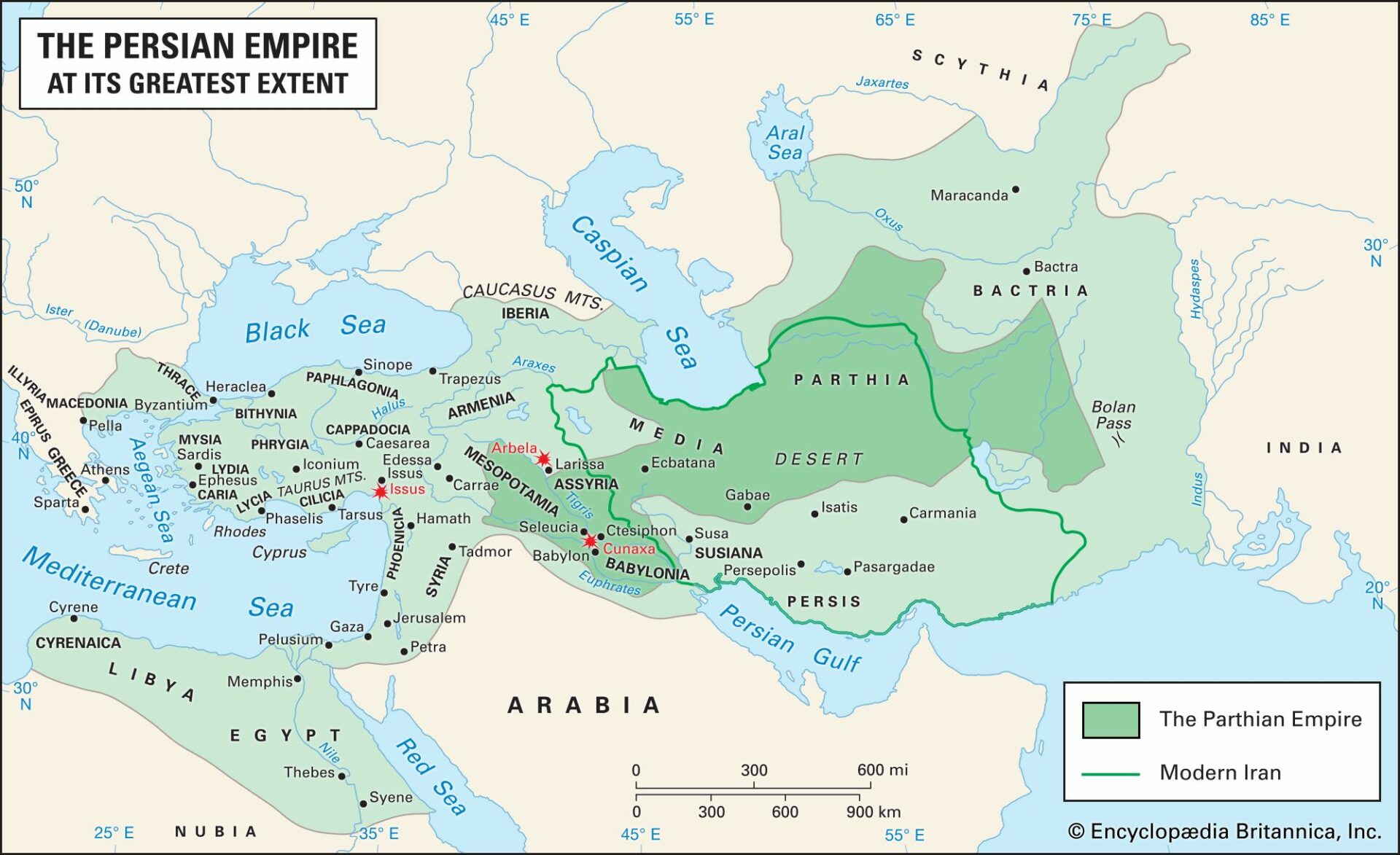
Issues and Parties in the Early Twentieth Century | Modern Empires and Imperialism
By the 1880s the prosperity, sense of confidence, and general air of political and social innovation associated with early and mid-Victorian leaders were on the wane. There was an undeniable depression in arable farming, a drop in prices for commerce, and a slowing in the rate of industrial growth.
-
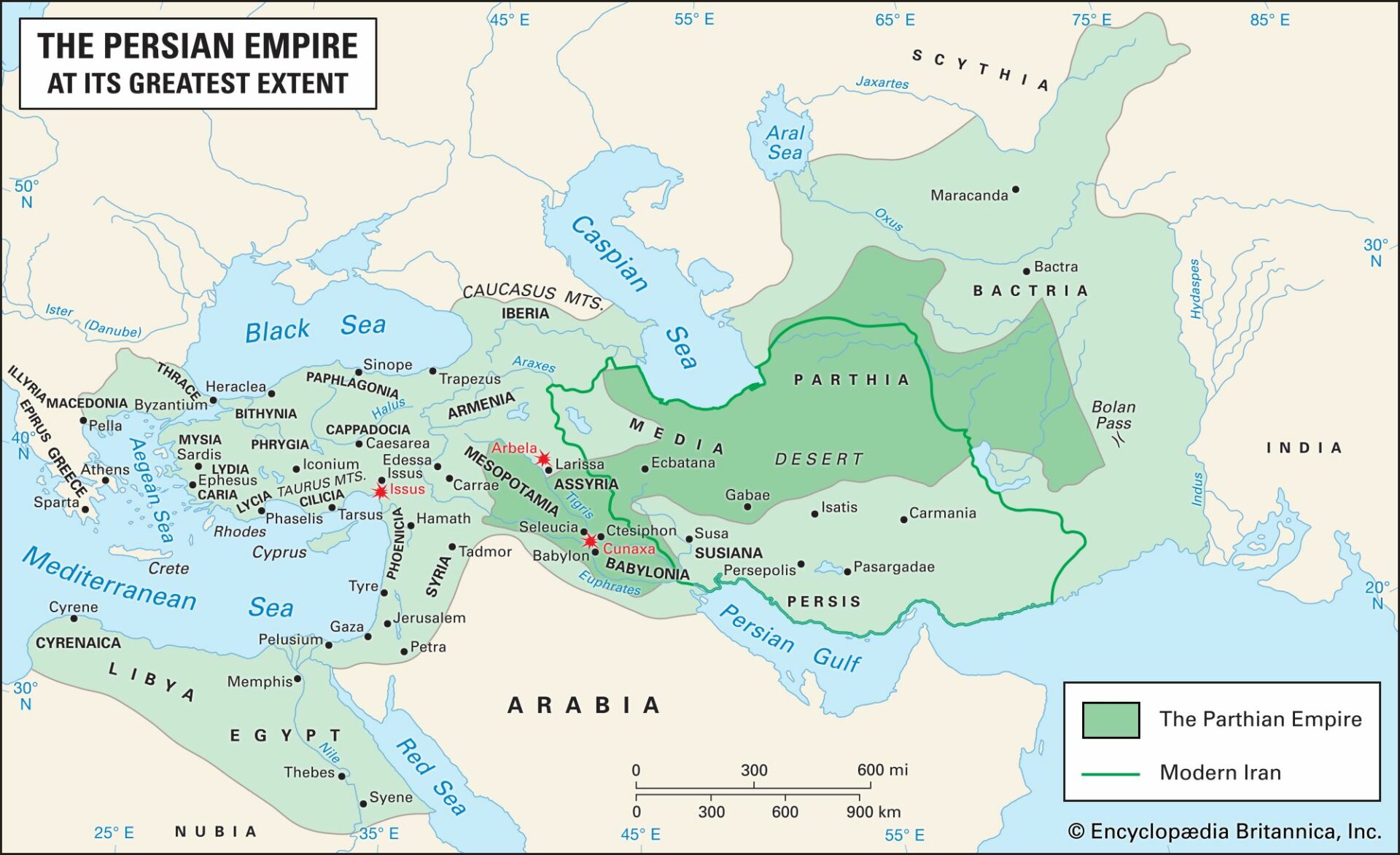
The Program of the Utilitarians | Modern Empires and Imperialism
The Reform Bill of 1832 was soon followed by other reform measures. Part of the inspiration for these reforms came from a middle-class group of Utilitarians, the Philosophic Radicals, who believed that, if properly educated, people are impelled by rational self-interest and thus automatically do what is best for themselves and their fellows.
-
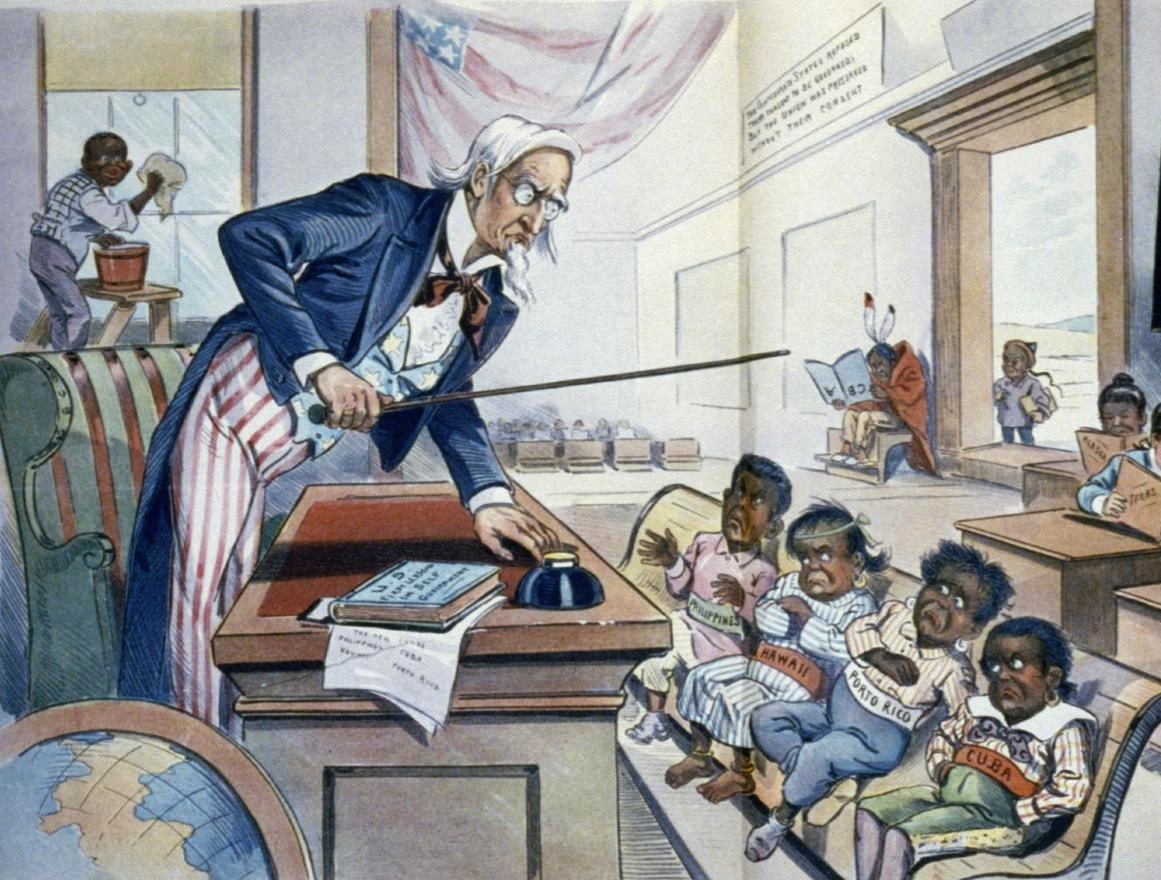
Triumph of the Two-Party System | Modern Empires and Imperialism
The Conservative and Liberal parties were very different from their ancestors, the oligarchical eighteenth-century factions of Tories and Whigs. The Conservatives kept their old electoral following among country gentlemen, army and navy officers, and Anglican clergymen, but they added many new supporters among agricultural laborers, tradespeople, and even some of the urban working and white-collar…
-
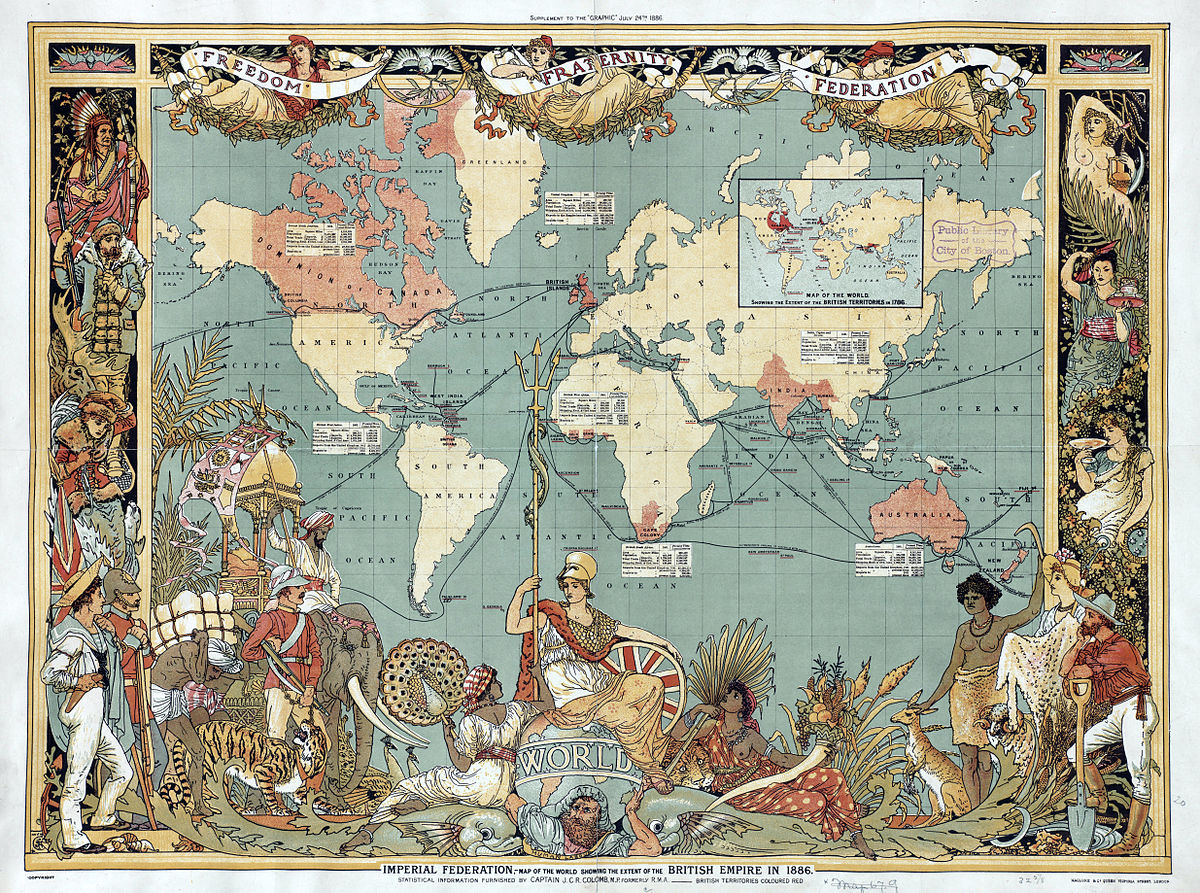
Slow British Democratization, to 1885 | Modern Empires and Imperialism
Britain emerged from the Napoleonic wars with an executive composed of a prime minister and his cabinet of ministers who were wholly under the control of Parliament.
-
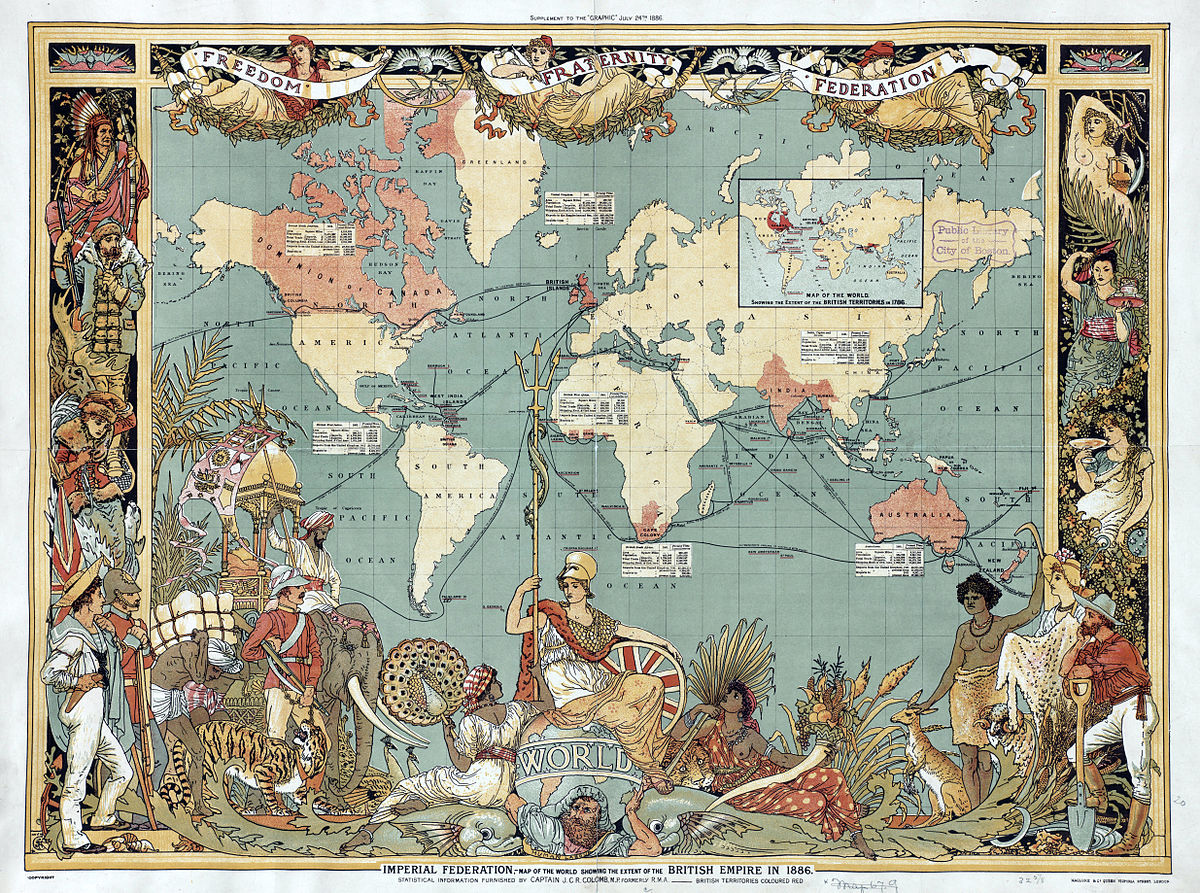
Britain: Toward the Postmodern, 1815-1914 | Modern Empires and Imperialism
In the years immediately after Waterloo, Britain went through an intense postwar economic crisis. Unsold goods accumulated, and the working classes experienced widespread unemployment and misery. Popular suffering increased as a result of the Corn Law of 1815, which forbade the importation of cheap foreign grain until the price of the home-grown commodity rose to…
-
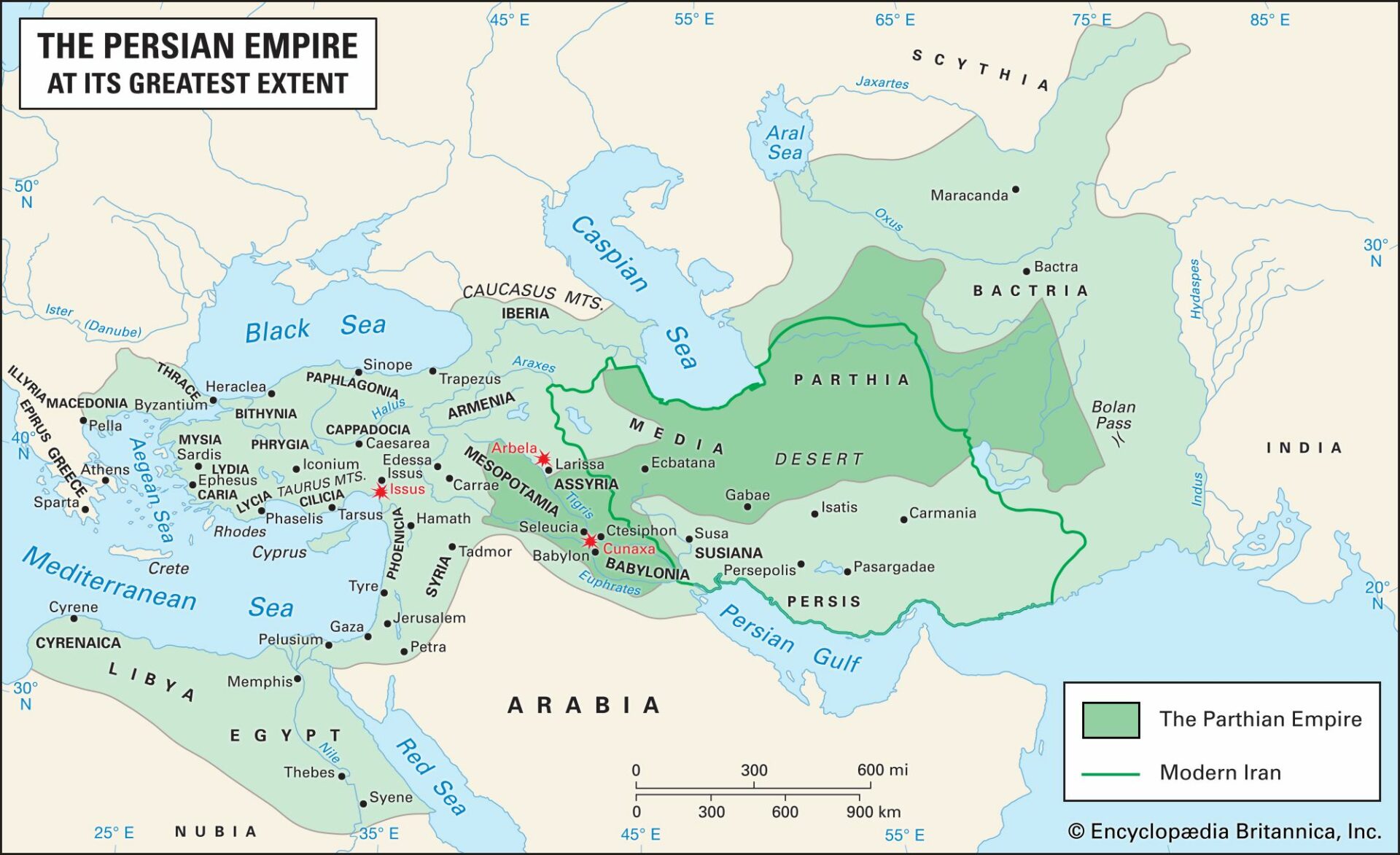
Modern Empires and Imperialism
In the Nineteenth Century one Western democracy led all others—Britain. At its height Britain possessed the greatest empire the world has ever seen. Nineteenth-century Britain grew into a Greater Britain, and its domestic history was inextricably bound up in imperial history, as foreign affairs were yoked to economic and industrial developments.
-
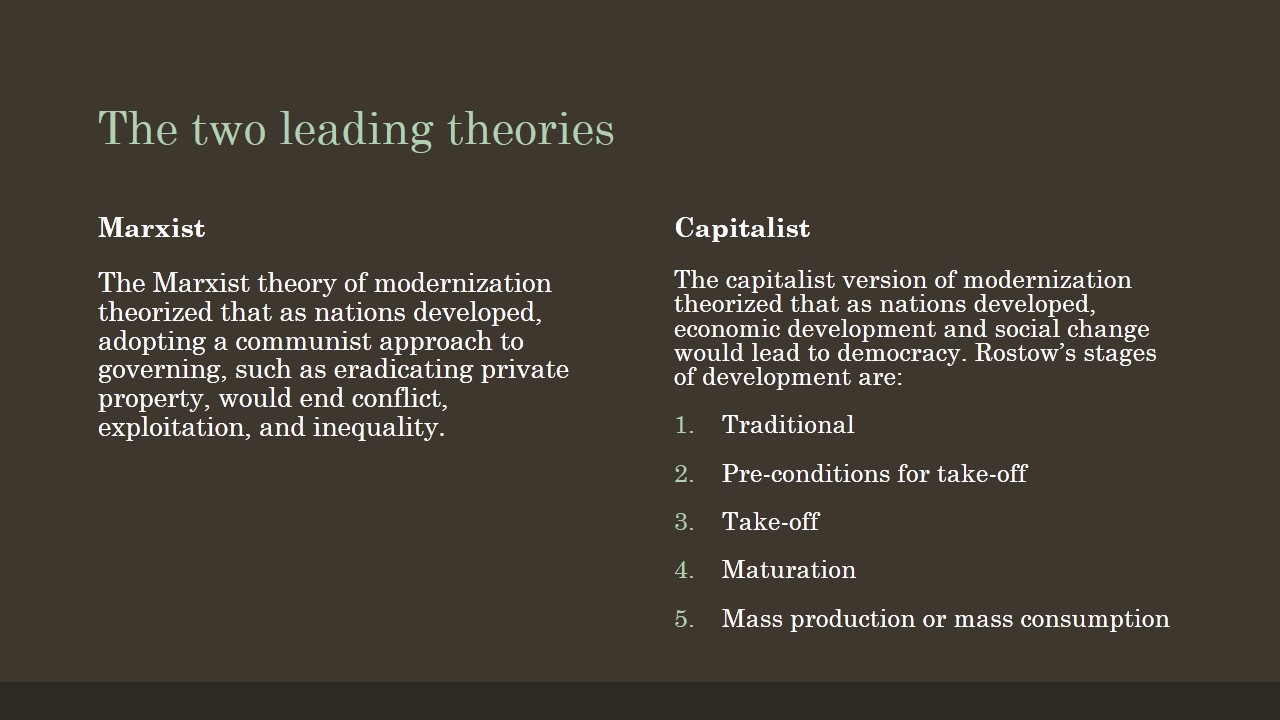
Summary | The Modernization of Nations
During the nineteenth century a sense of patrie, or commonality, brought the French together. A coup d’etat engineered by Louis Napoleon in 1851 ended the Second Republic and gave birth to the Second Empire. Napoleon III promised to reform but did little to improve the standard of living of the working class. Population expansion and…
-
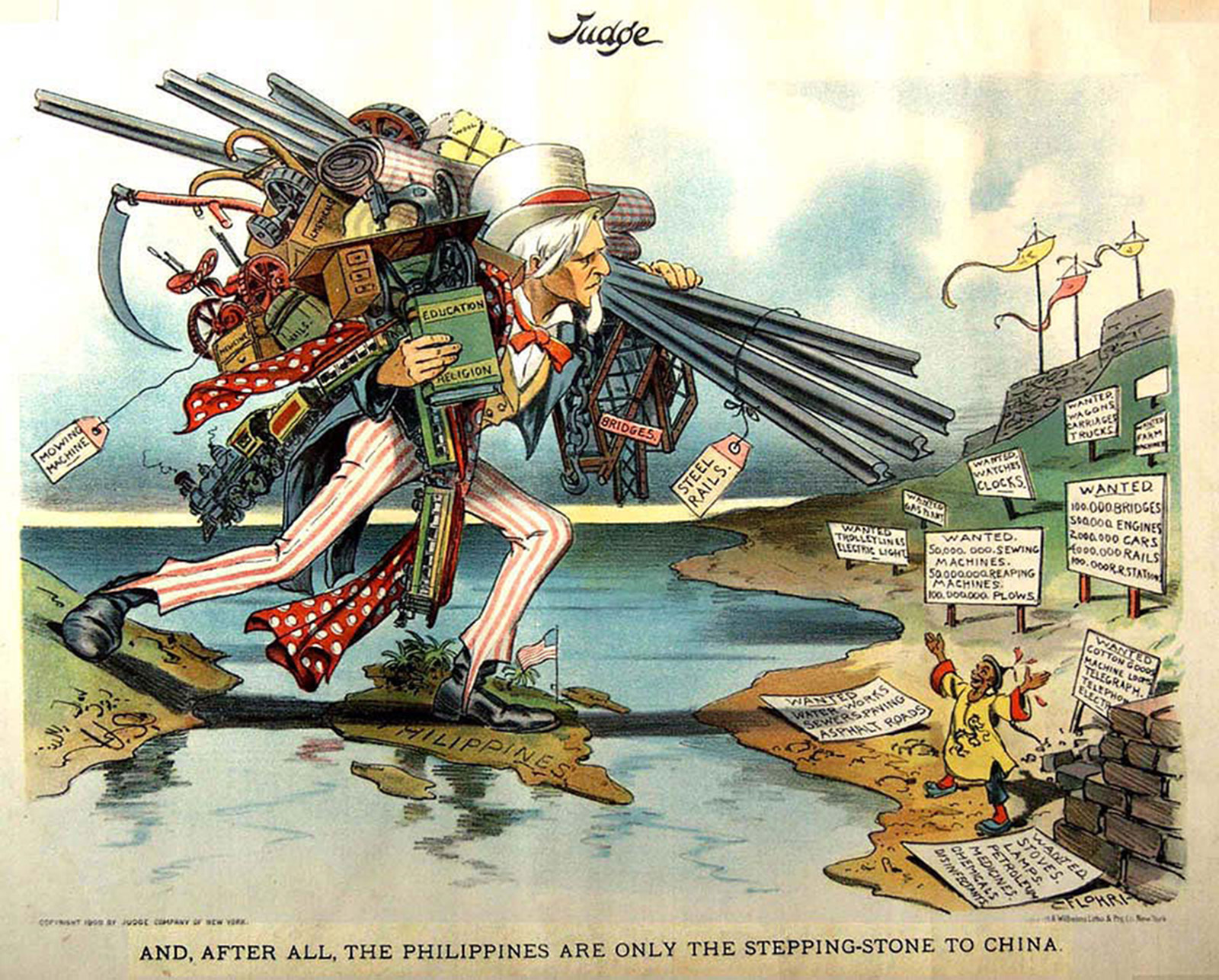
The United States Becomes a World Power, 1898-1914 | The Modernization of Nations
Quite as clear, though still the subject of complex debate among Americans, was the emergence of the United States as a great international power. From the very beginning it had a department of state and a traditional apparatus of ministers, consuls, and, later, ambassadors. By the Monroe Doctrine of the 1820s it took the firm…
-
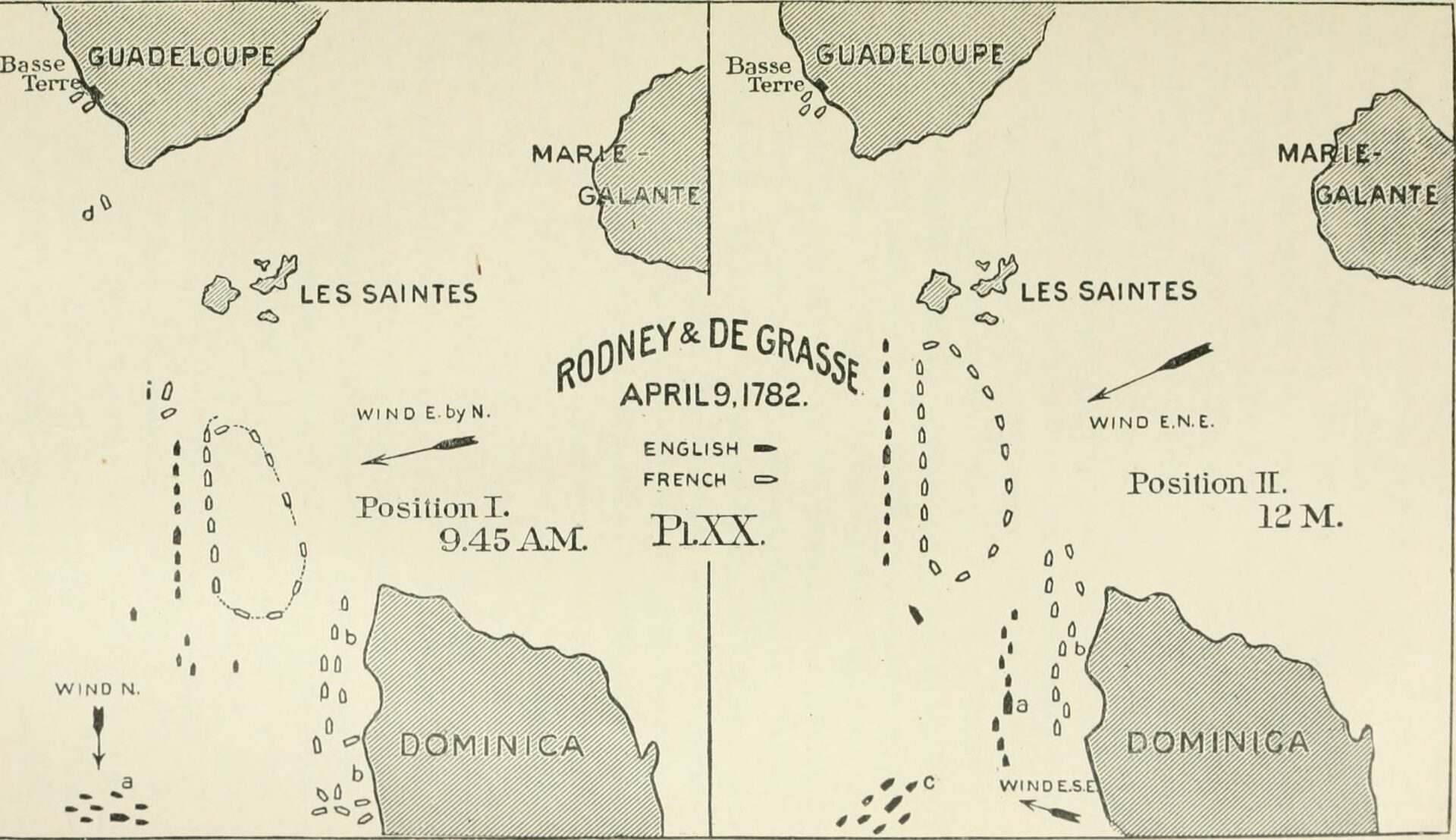
The Influence of Sea Power
The new “navalism,” which already had assertive advocates in Britain and Germany, derived many of its doctrines from the writings of an American officer, Captain Alfred T. Mahan (1840-1914). Mahan’s book The Influence of Sea Power upon History (1890), and his later works assigned navies a place of preeminent importance in determining power status and…
-
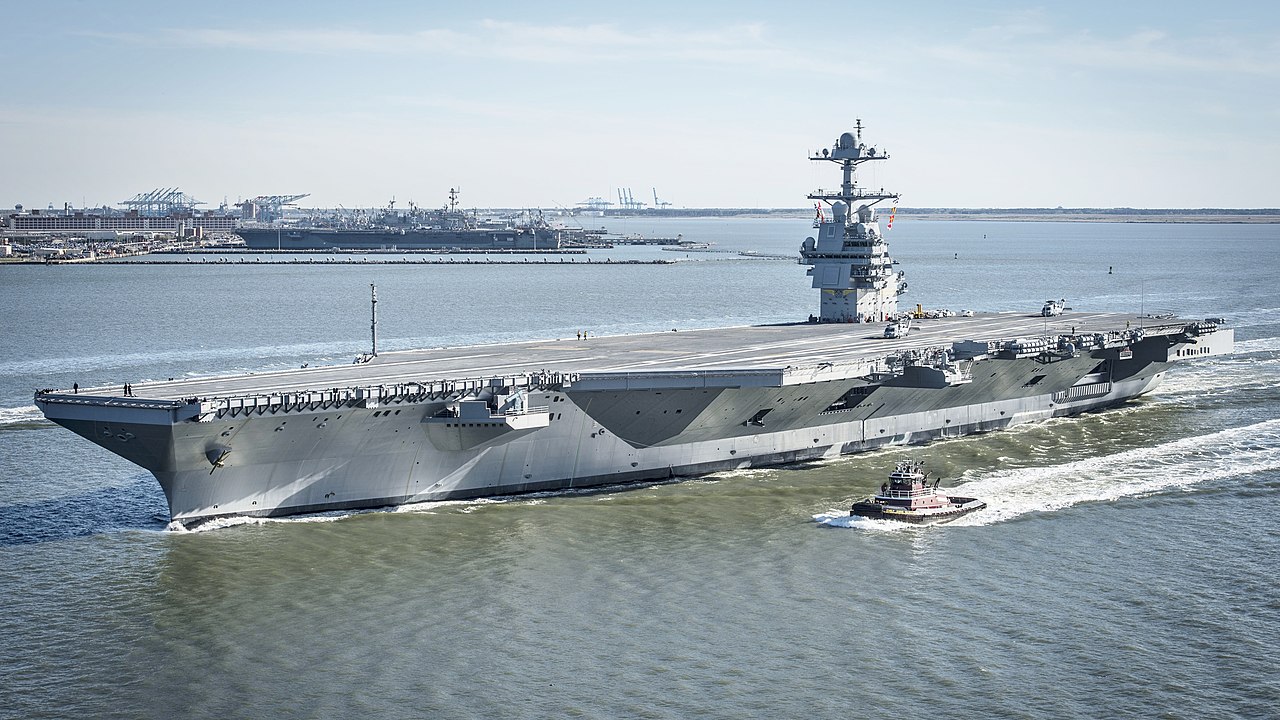
United States Free Enterprise and Government Regulation, 1865-1917 | The Modernization of Nations
In 1865 the American economy was still in some respects “colonial”; that is, it produced mainly foods and other raw materials, to be exchanged abroad for manufactured goods. In financial terms, it was dependent on foreign money markets.
-
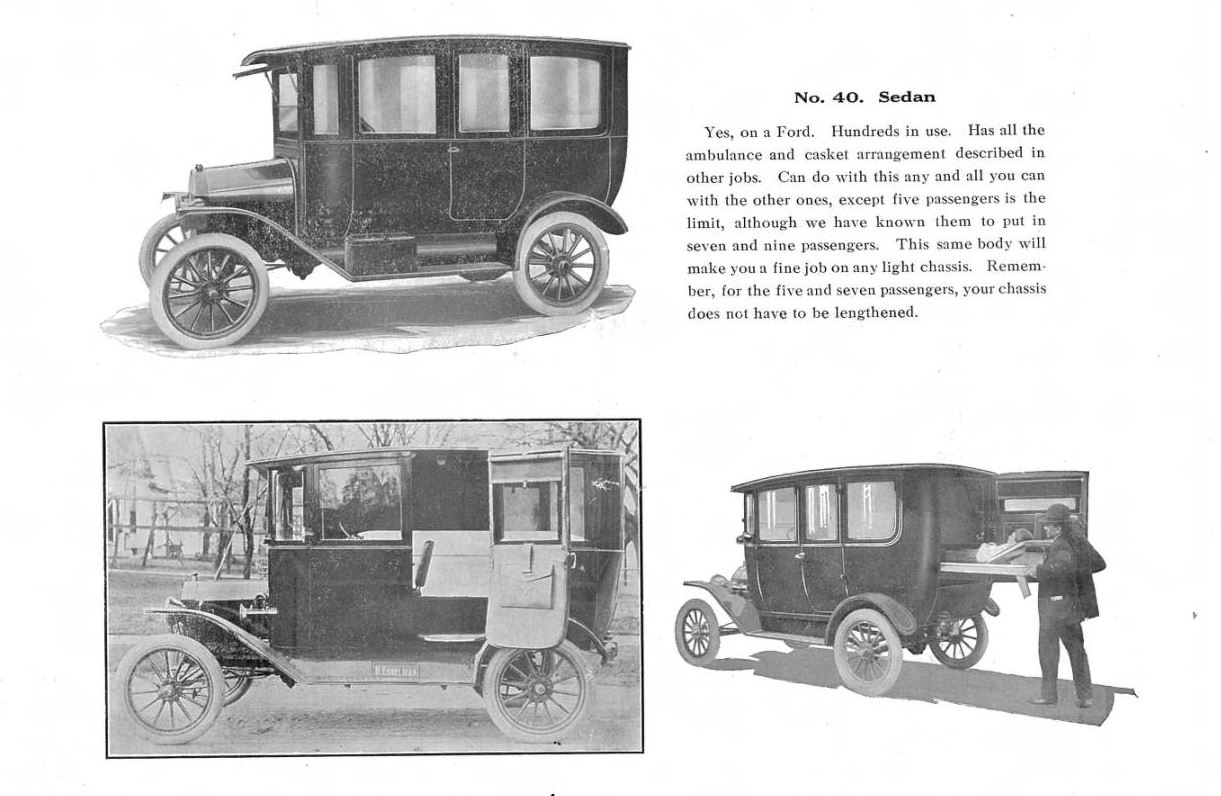
The United States Civil War and Reconstruction, 1861-1877 | The Modernization of Nations
The greatest test of the Federal Union was the war that broke out in 1861 after long years of sectional strife within the union between North and South. The Civil War was really an abortive nationalist revolution, the attempt of the Confederate (Southern) states to set up a separate sovereignty, as the southern Democrats lost…
-
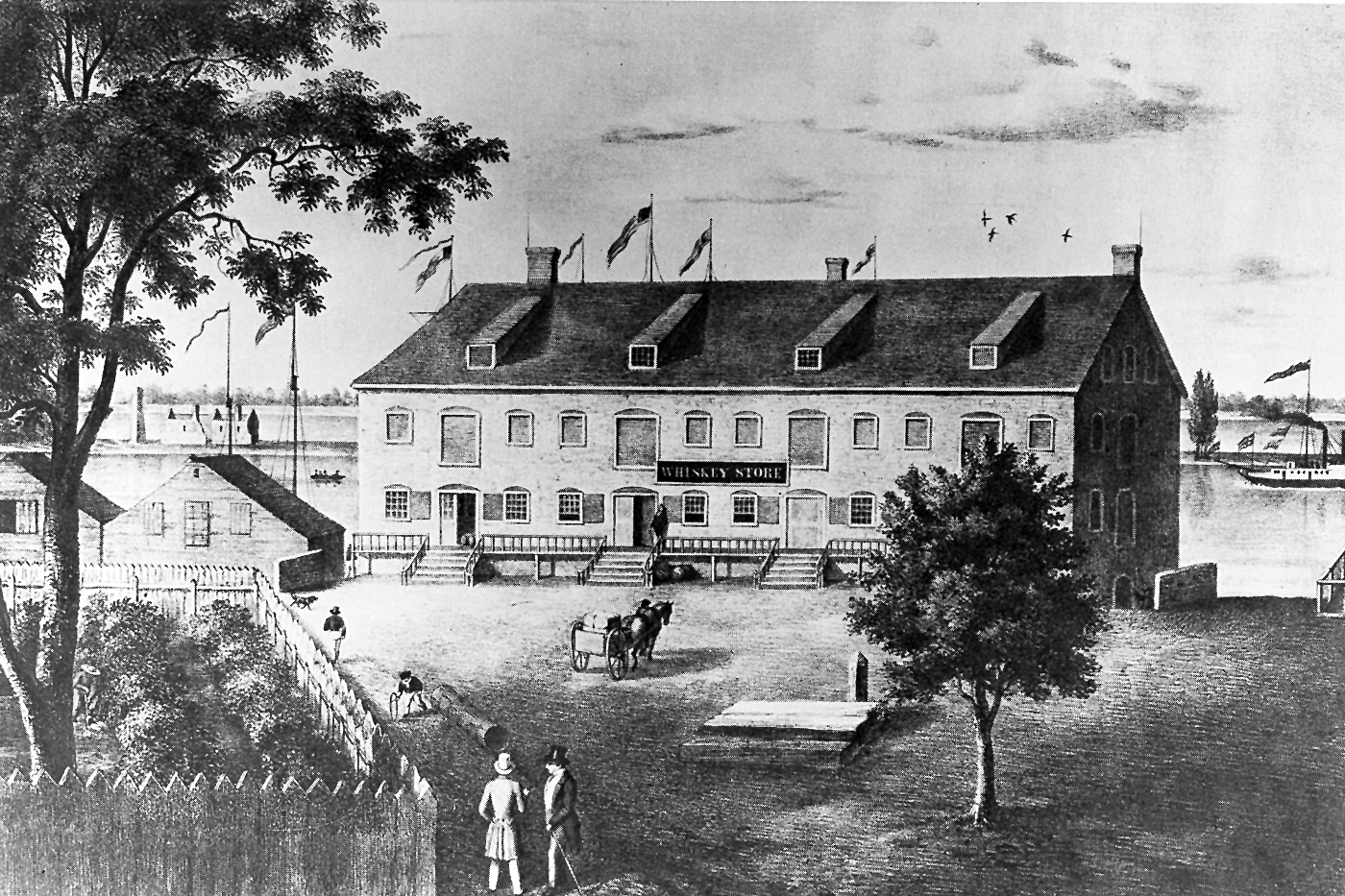
The US Federal Union, 1787-1861 | The Modernization of Nations
The land that became so powerful in little more than a century was, in the late 1700s, almost empty of cultivation beyond the Appalachians. Most observers expected the central parts of the North American continent to fill up eventually with settlers, but few realized how quickly this would occur.
-
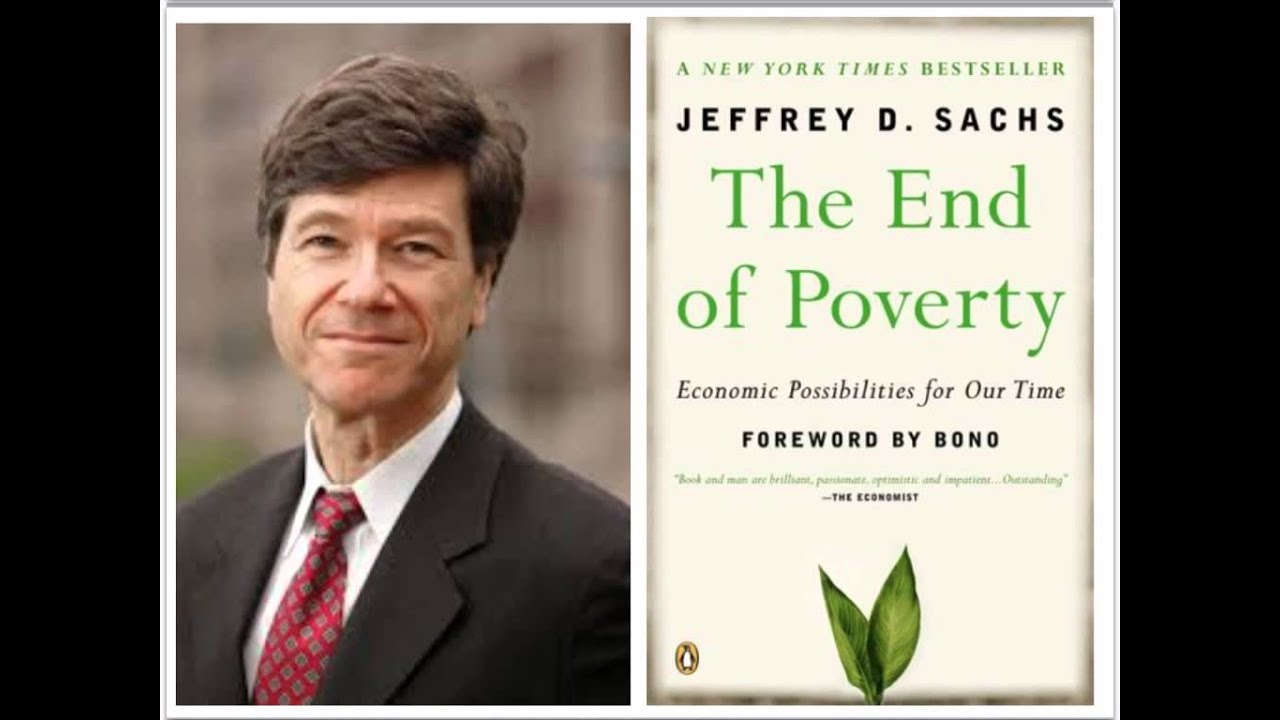
The United States: Modernization at Top Speed | The Modernization of Nations
Two sets of statistics dramatically point up the speed of American growth. In 1790 the United States comprised 892,000 square miles, and in 1910, 3,754,000 square miles. Even more important, the population of the United States was 3,929,000 in 1790, and 91,972,000 in 1910—a total greater than that of either of the most powerful European…
-

The Dumas, 1906-1914 | The Modernization of Nations
Suffrage for the Duma was universal but indirect. Voters chose an electoral college, which then selected the 412 deputies. Although SRs and SDs boycotted the elections, many of them were elected. The Kadets were the strongest party. Contrary to the expectations of the government, the peasant vote was highly liberal. But even before the First…
-
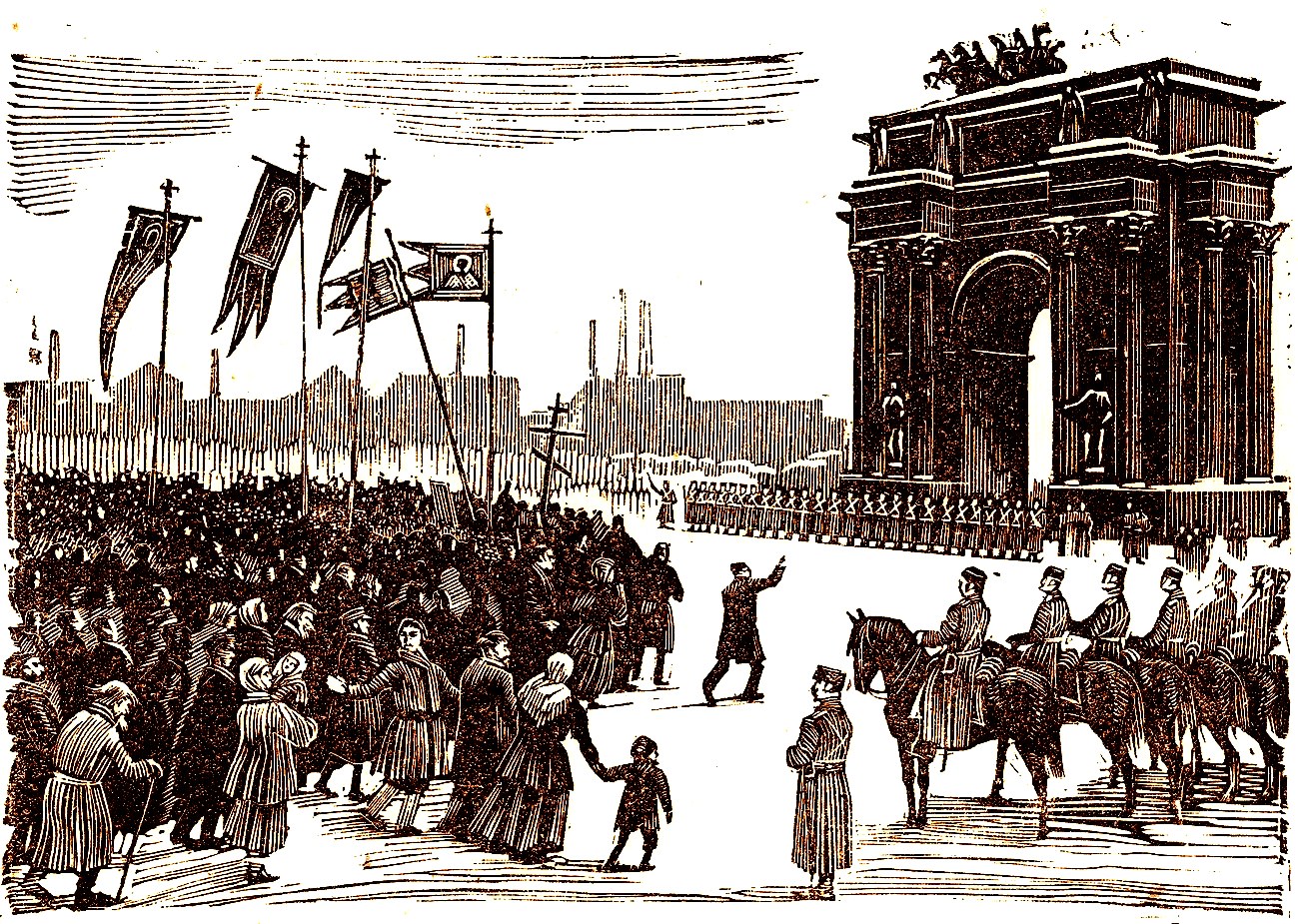
The Revolution of 1905 | The Modernization of Nations
Immediately after the Russo-Japanese War the future Kadets held banquets throughout Russia to adopt a series of resolutions for presentation to a kind of national congress of zemstvo representatives. Although the congress was not allowed to meet publicly, its program—a constitution, basic civil liberties, class and minority equality, and extension of zemstvo responsibilities—became widely known…
-
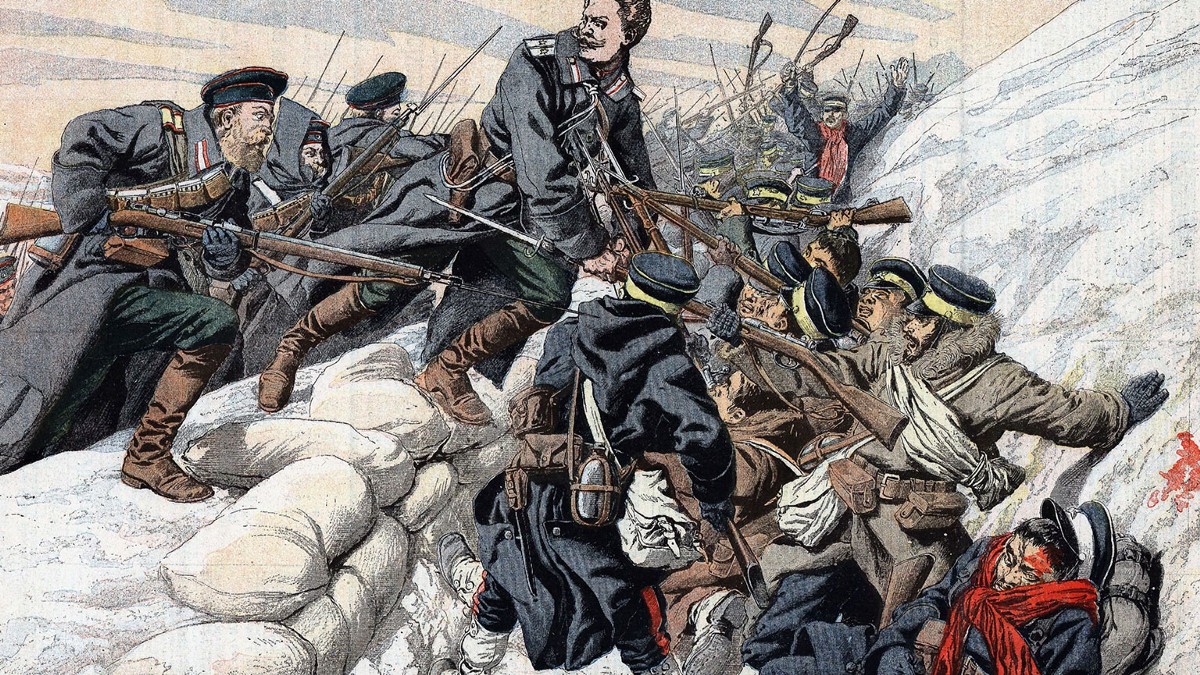
The Russo-Japanese War | The Modernization of Nations
Trans-Siberian railway construction made it desirable for the Russians to obtain a right-of-way across Chinese territory in Manchuria. The Russians took the initiative in preventing Japan from establishing itself on the Chinese mainland after Japan defeated China in 1895; in exchange, Russia then required the Chinese to allow the building of the new railroad. In…
-
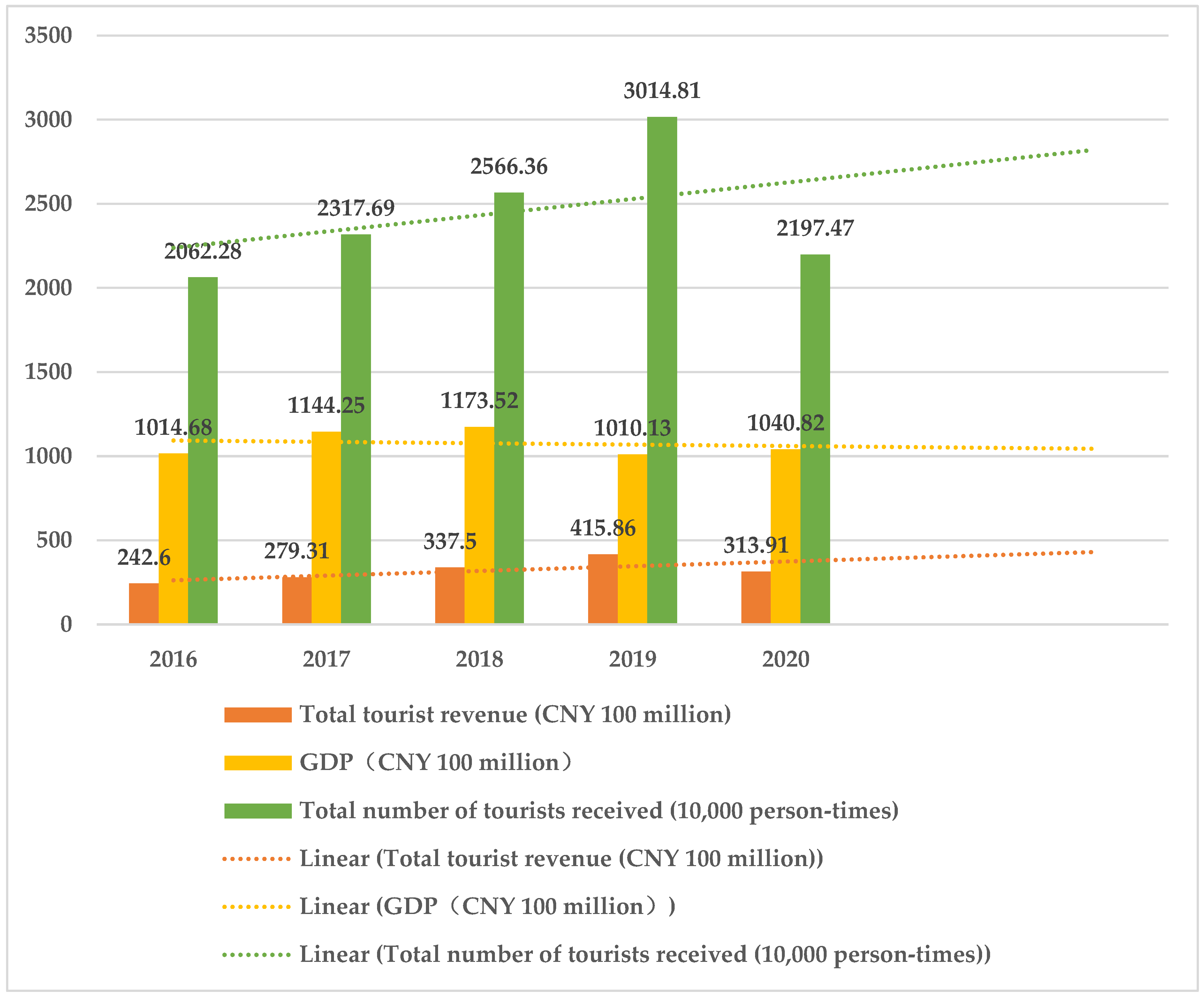
The Years of Reaction, 1881-1904 | The Modernization of Nations
The reign of Alexander III and the first decade of the reign of his son, Nicholas II, formed a quarter-century of consistent policies (1881-1904) of the kind Tolstoy attacked so eloquently. Both czars hated the earlier liberal reforms and were determined that there would be no more.
-
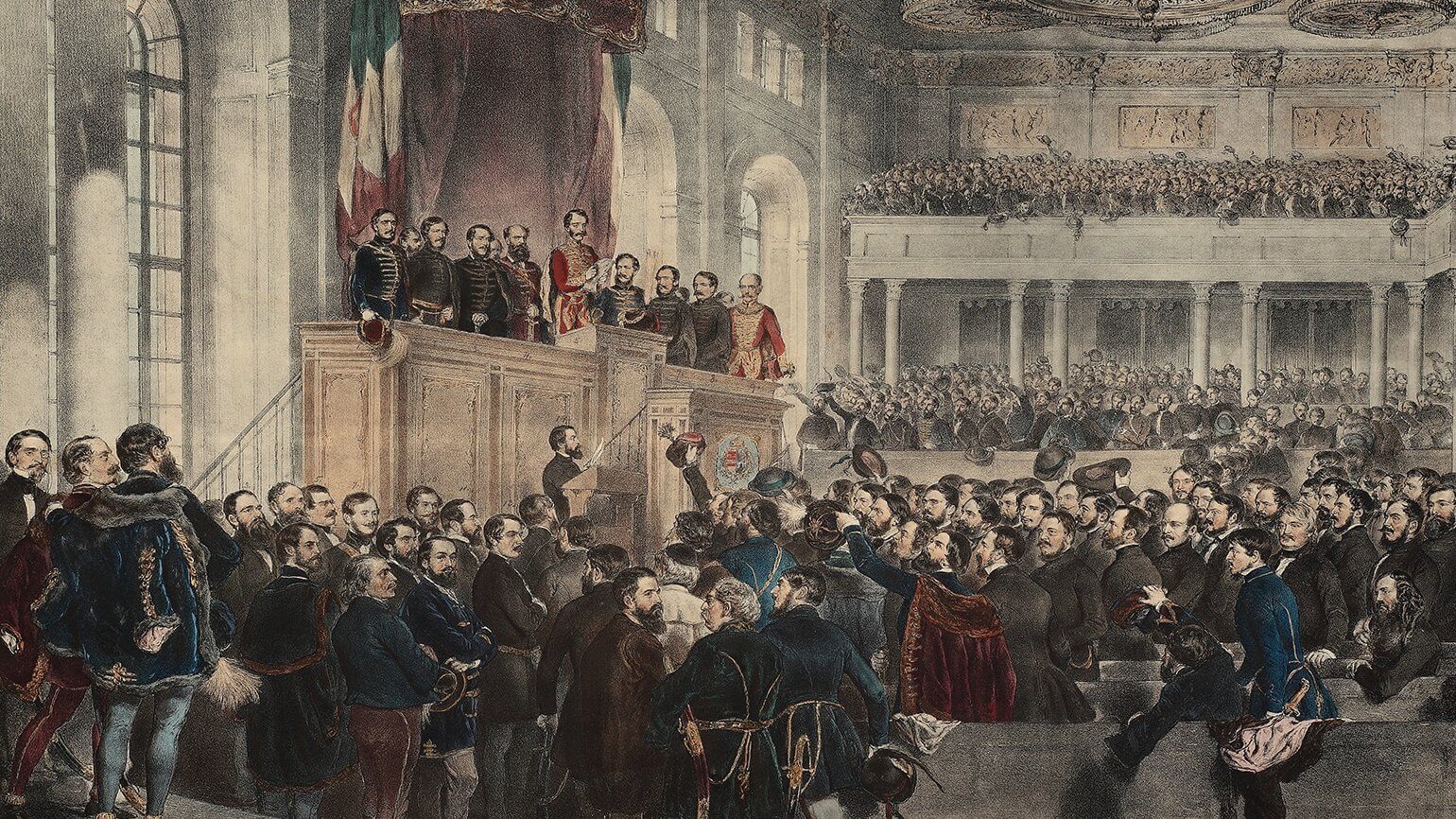
The Idea of an Intelligentsia | The Modernization of Nations
Early in Nicholas’s reign, Russian professors and students, influenced by German philosophers, were devoting themselves to discussions on art, philosophy, and religion. Russian universities were generally excellent and at the cutting edge of the great variety of modernizing ideas associated with the nineteenth century.
-
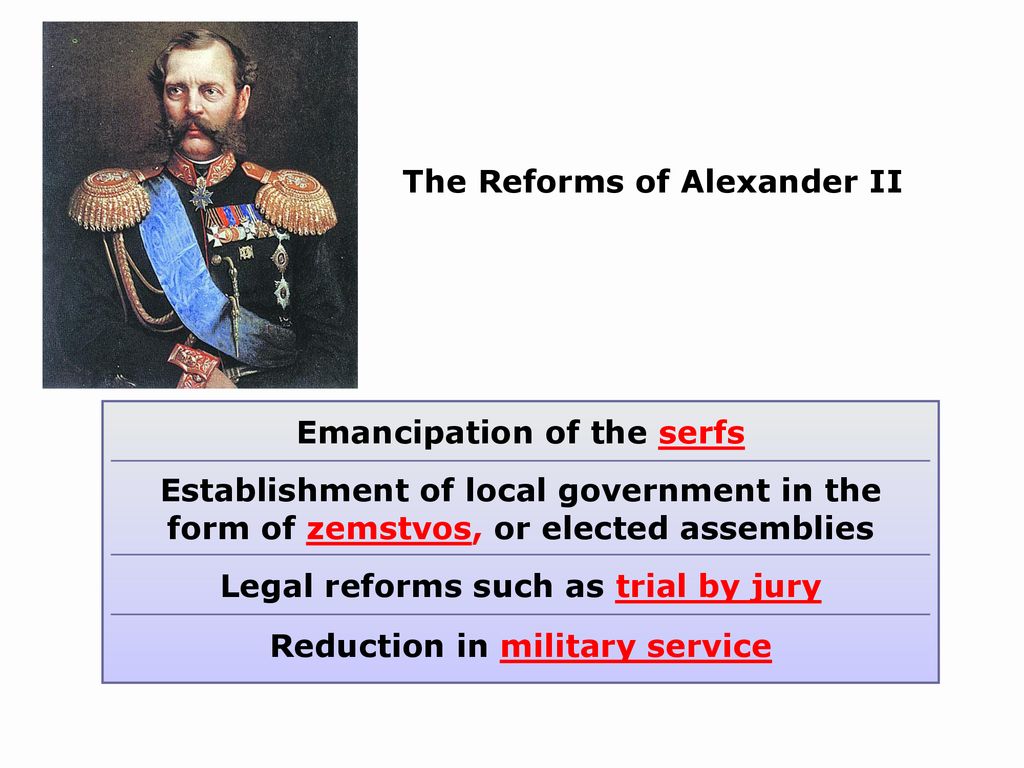
Alexander II and Reform, 1855-1881 | The Modernization of Nations
The economic developments of the early nineteenth century had rendered the system of serfdom less and less profitable. In the south, where land was fertile and crops were produced for sale as well as for use, the serf usually tilled his master’s land three days a week, but sometimes more. In the north, where the…
-
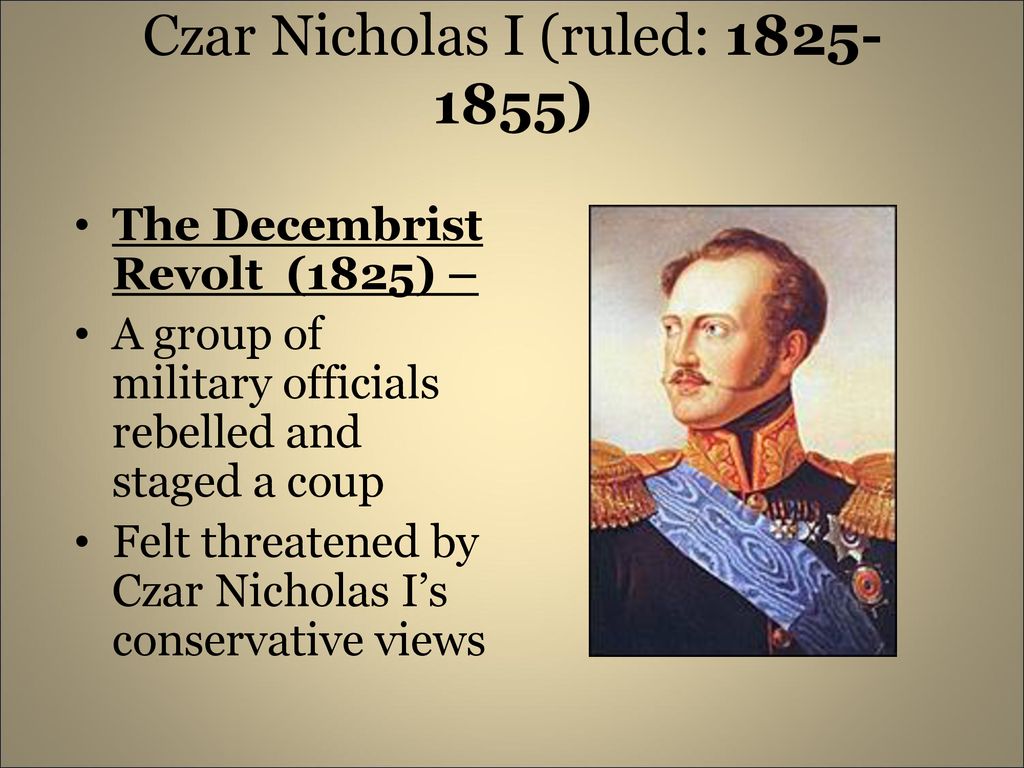
Nicholas I, 1825-1855 | The Modernization of Nations
Reactionary and autocratic, literal-minded and devoted to military engineering, Nicholas I worked hard at the business of the state. Although he despised all constitutions, he honored the liberal constitution that his elder brother Alexander had granted to the Poles until the Poles themselves revolted in 1831.
-

Russia, 1825-1914 | The Modernization of Nations
In Russia the process of modernization took far longer than in western Europe. There was no parliament in Russia until 1905. Serfdom was not abolished until 1861. Each time reform came—in the 1860s and in 1905 and 1906—it came as a result of military defeat abroad.
-
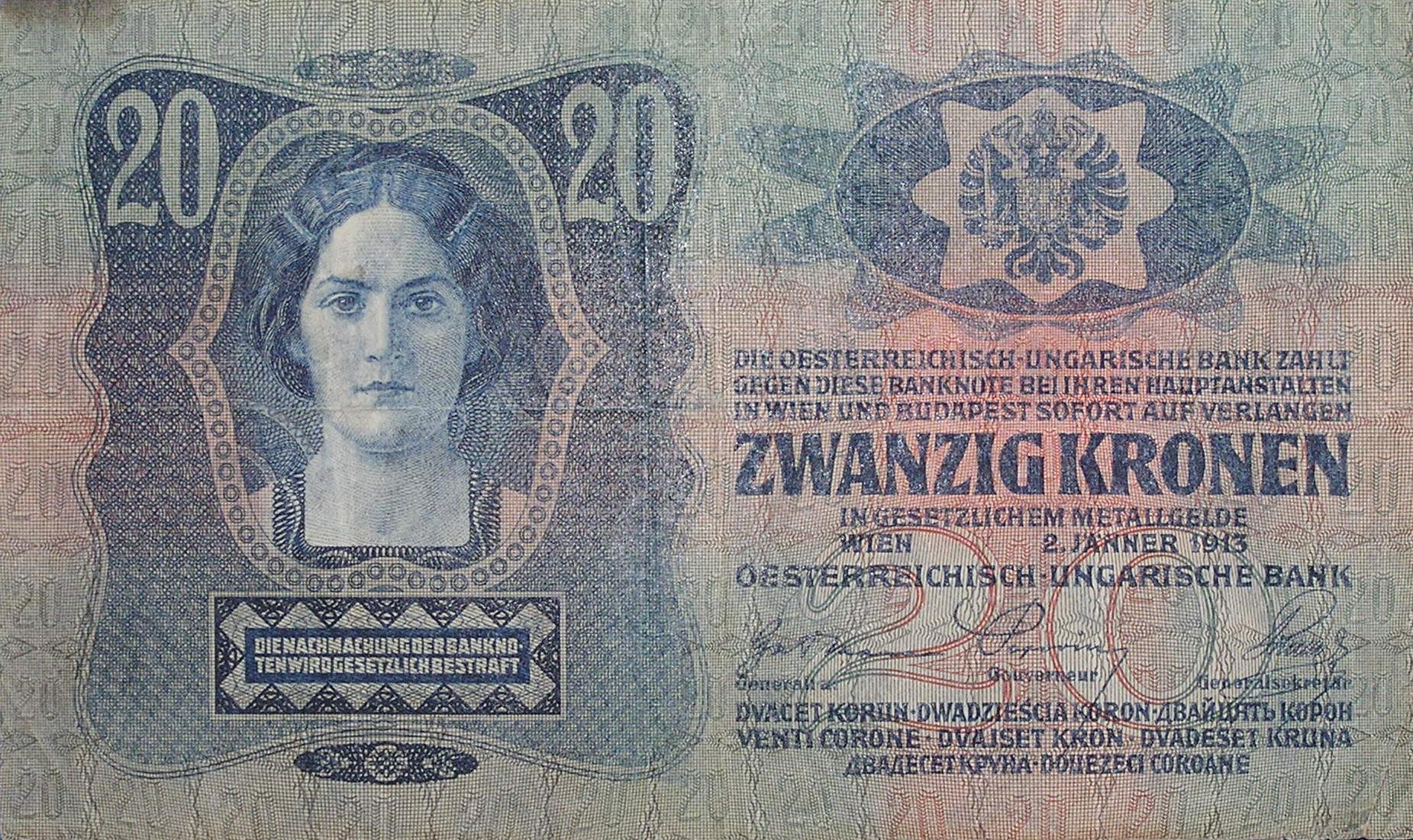
Society and Politics in Austria and Hungary, 1867-1914 | The Modernization of Nations
Since Austria was 90 percent Catholic, it did not experience the strenuous Kulturkampf of Germany. However, liberals did fight clerical conservatives over religious issues and forced through bills legalizing civil marriages, quasi- secularized schools, and taxes on church property.
-

Minorities in Hungary | The Modernization of Nations
In Hungary minority problems were more acute. The Slovaks, the Romanians, and the Serbs and Croats living in Hungary were the worst victims of a deliberate policy of Magyarization. The Magyar aim was to destroy the national identity of the minorities and to transform them into Magyars; the weapon used was language.
-
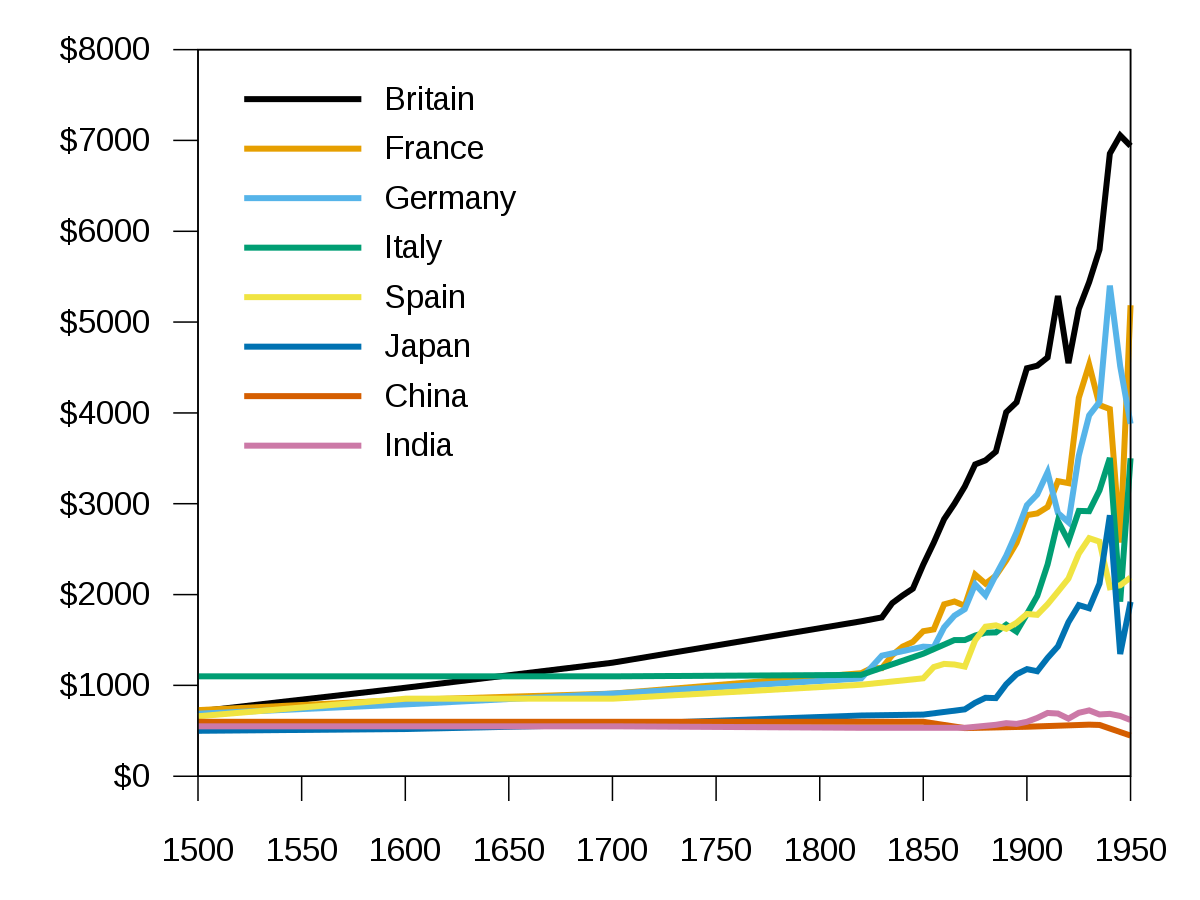
The Nationality Question in Austria | The Modernization of Nations
After 1867 many Czechs argued that the lands of the Crown of St. Wenceslaus, a martyred prince of Bohemia (d. 929), possessed rights comparable to those that the Magyars had successfully claimed for the lands of the Crown of St. Stephen (c. 975-1038), who had been crowned as first king of Hungary in 1001.
-
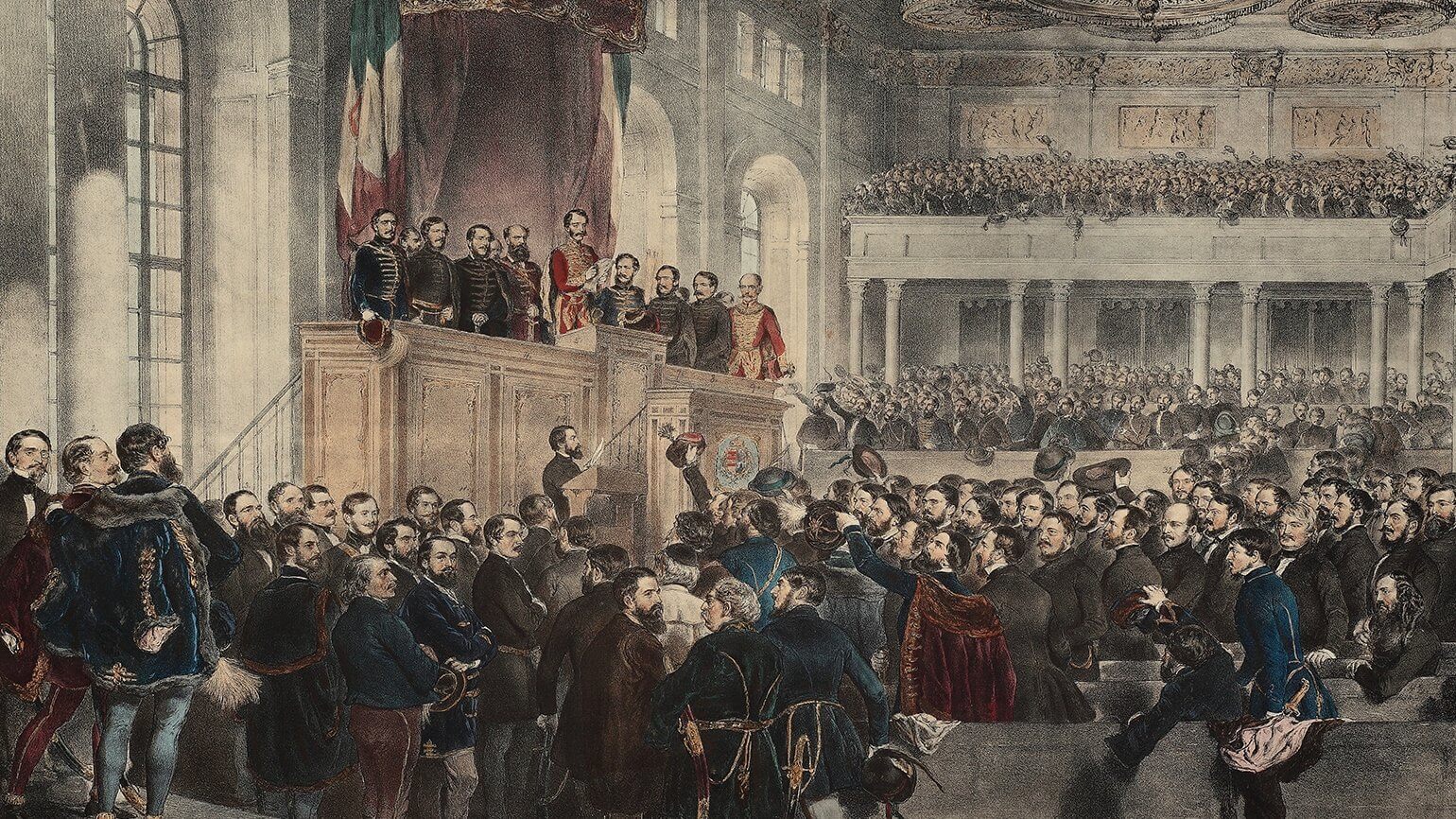
The Dual Monarchy, 1867 | The Modernization of Nations
This formula was the Ausgleich, or “compromise,” which created the unique dual monarchy of Austria-Hungary. The Hungarian constitution of 1848 was restored, and the entire empire was reorganized as a strict partnership.
-
The Growth of Bureaucracy
Bureaucracy is one of those words that has changed in connotation while also describing a major development that is part of “modernization.” As nation-states became ever more centralized and powerful, they tended to take on more and more responsibilities with respect to their citizens. Agencies of government, that is bureaus, were created to administer the…
-
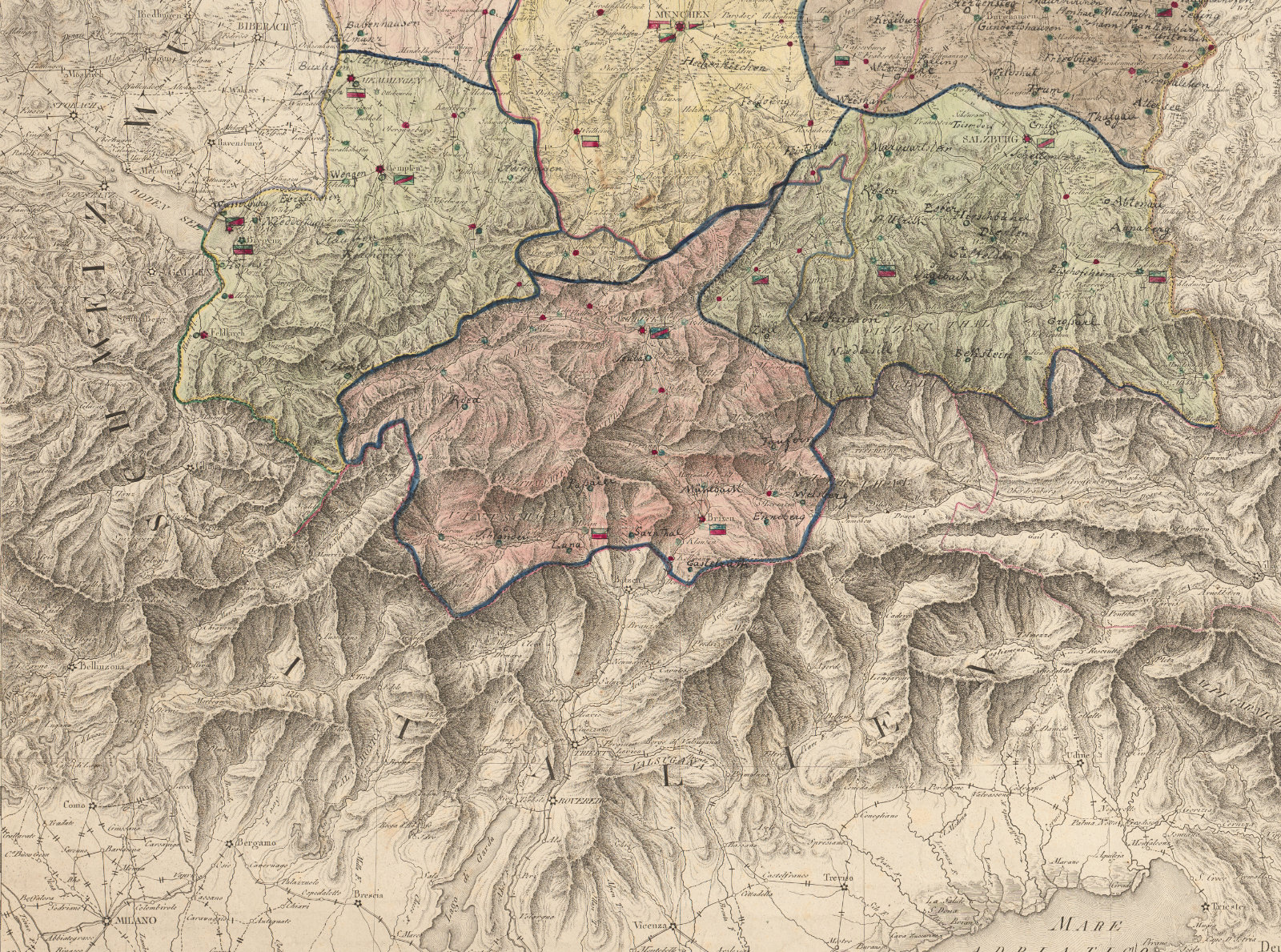
The Habsburg Empire: Dividing Humanity Into Nations | The Modernization of Nations
In a sense, nationalism was a doctrine invented in Europe in the nineteenth century to account for social, economic, and political changes that required a single descriptive term.
-

Eating Well in the Nineteenth Century
In June 1867, the Dinner of the Three Emperors brought together Alexander II, czar of Russia, the czarevich (the future Alexander III), and the future emperor William I (then king of Prussia) at the Cafe Anglais in Paris to dine most royally, as the menu indicates. Guests had a choice of soups and could substitute…
-
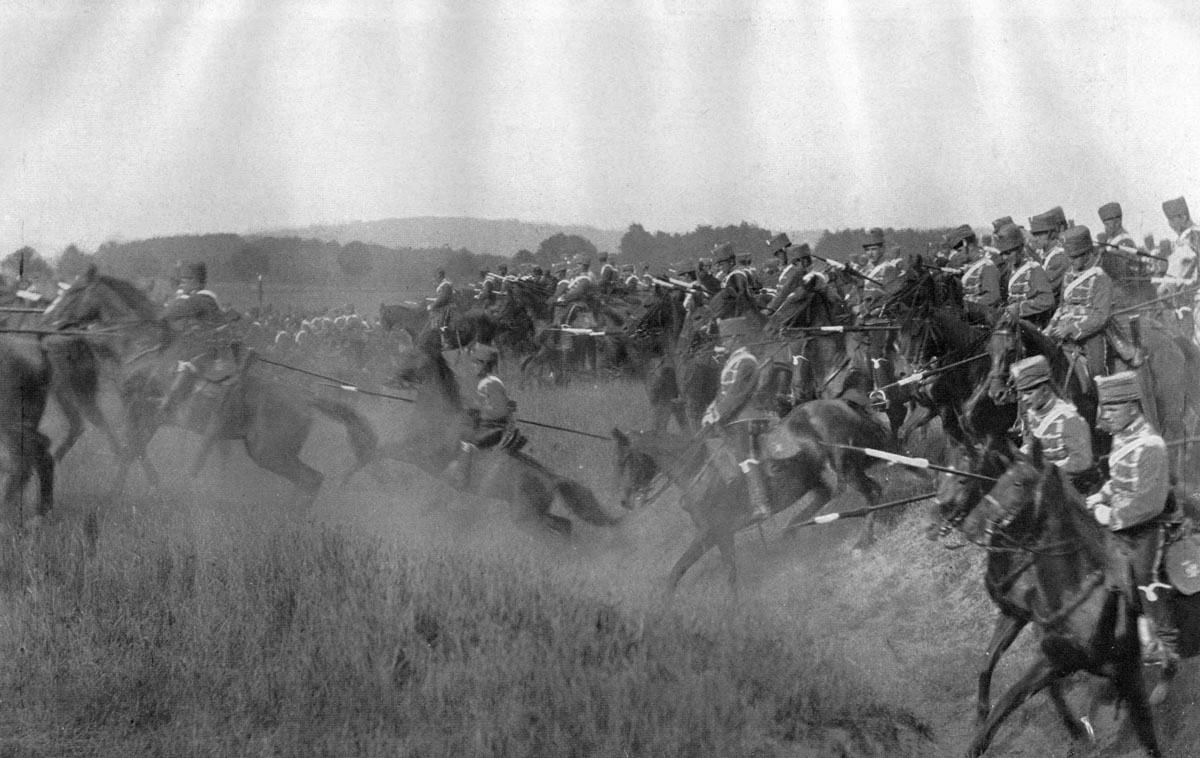
Imperial Germany, 1871-1914 | The Modernization of Nations
Even before this peace had been imposed, King William of Prussia was proclaimed emperor of Germany. When a constitution for the new empire was adopted, it was simply an extension of the constitution of the North German Confederation of 1867. As chancellor of the German Empire from 1871 to 1890, Bismarck became the leading statesman…
-
War and the Strengthening of German Nationhood, 1863-1871 | The Modernization of Nations
When the king of Denmark died in late 1863, a controversy over Schleswig-Holstein gave Bismarck further opportunities. In brief, the duchies of Schleswig and Holstein at the southern base of the Danish peninsula had been ruled by the king of Denmark, but not as part of Denmark. A fifteenth-century guarantee assured the duchies that they…
-
Prussia and the German Confederation, 1848-1862 | The Modernization of Nations
The first major question facing the leaders of central Europe after the revolutions of 1848 was whether Prussia or Austria would dominate the German Confederation. The “Big German” solution called for federation with Austria; the “Little German” solution called for separation from Austria or even from south Germany. The “Little German” program also meant Prussian…
-

Assets and Liabilities of a United Italy | The Modernization of Nations
The new kingdom started out with the asset of favorable public opinion. Italian national unity seemed natural and desirable, and it had been achieved with little bloodshed through a mixture of Garibaldian romance and Cavourian realism. The enthusiasm that had brought the Risorgimento to fruition was now in the service of a united Italy.
-
Cavour and Garibaldi | The Modernization of Nations
Cavour was a superlatively adept practitioner of the brand of diplomacy often called Realpolitik, or the politics of realism and power. As chief minister of Piedmont, he cultivated French and English support, bringing Piedmont into the Crimean War on their side against Russia.
-
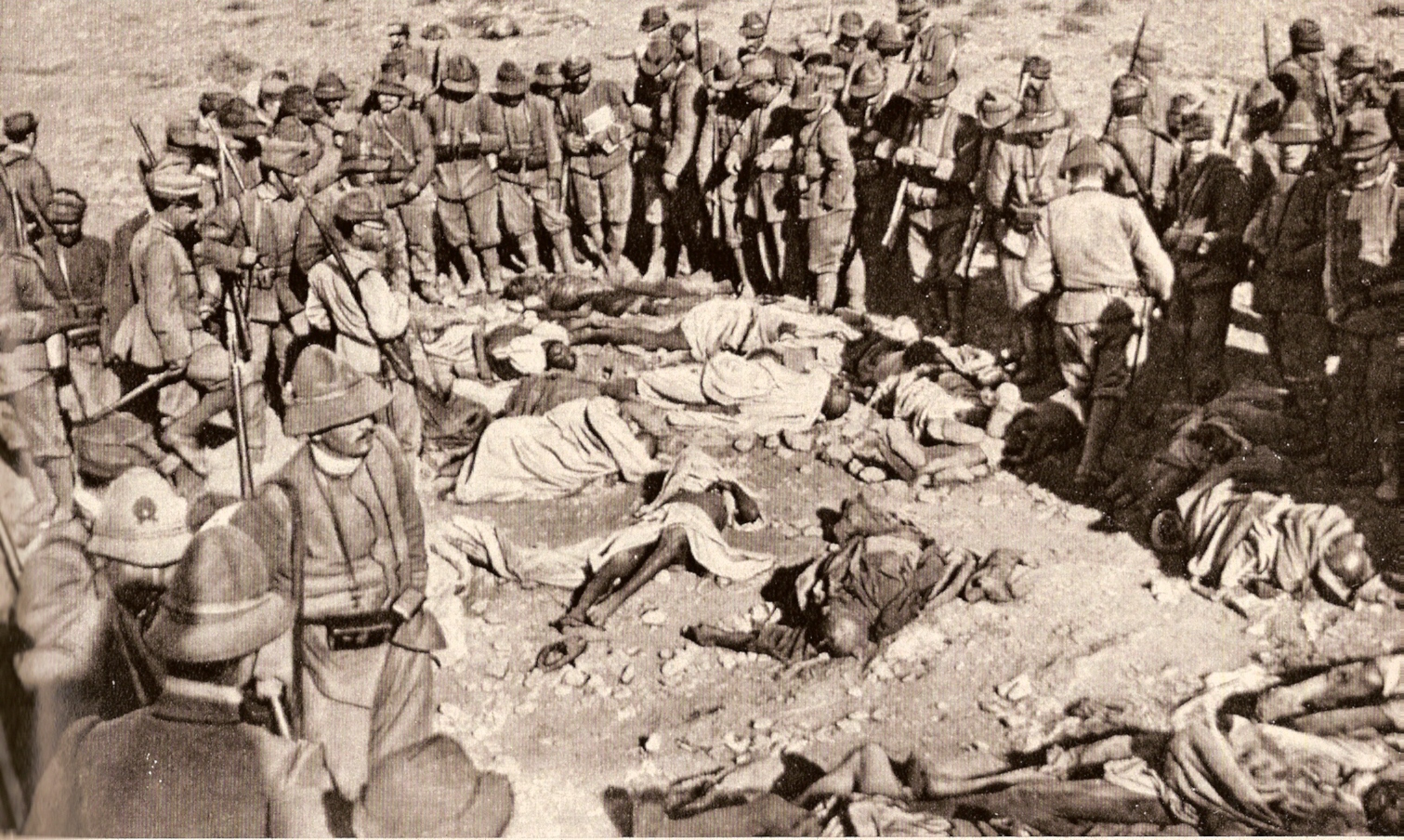
Italy and Union, 1849-1914 | The Modernization of Nations
Italian national unity seemed remote after Piedmont’s two decisive defeats by Austria in 1848 and 1849, yet it was accomplished by 1870. The three leaders of the Risorgimento in its years of triumph were the romantic nationalist adventurer Giuseppe Garibaldi (1807-1882); Victor Emmanuel II of the house of Savoy (1849-1878), king of Piedmont-Sardinia (and later…
-

The Third Republic, 1870-1914 | The Modernization of Nations
The Second Empire might have converted into a constitutional monarchy with full parliamentary government. Yet the changes had been wrung from an ailing and vacillating emperor by frequent popular agitation. It is also possible that a radical republican groundswell would have submerged the empire in any case.
-

A Second Empire, 1851-1870 | The Modernization of Nations
The coup d’etat of December 2, 1851, was skillfully timed to coincide with the anniversaries of the coronation of Napoleon I and the greatest Napoleonic victory, Austerlitz.
-

France: A Second Empire, A Third Republic | The Modernization of Nations
Sometime between 1850 and the outbreak of World War I in 1914, rural France joined urban France in expressing a common sense of identity—nationhood. By the end of the century popular and elite cultures were united in their sense of patrie (fatherland), of nationality, even when they continued to disagree over the nation’s goals. The…
-
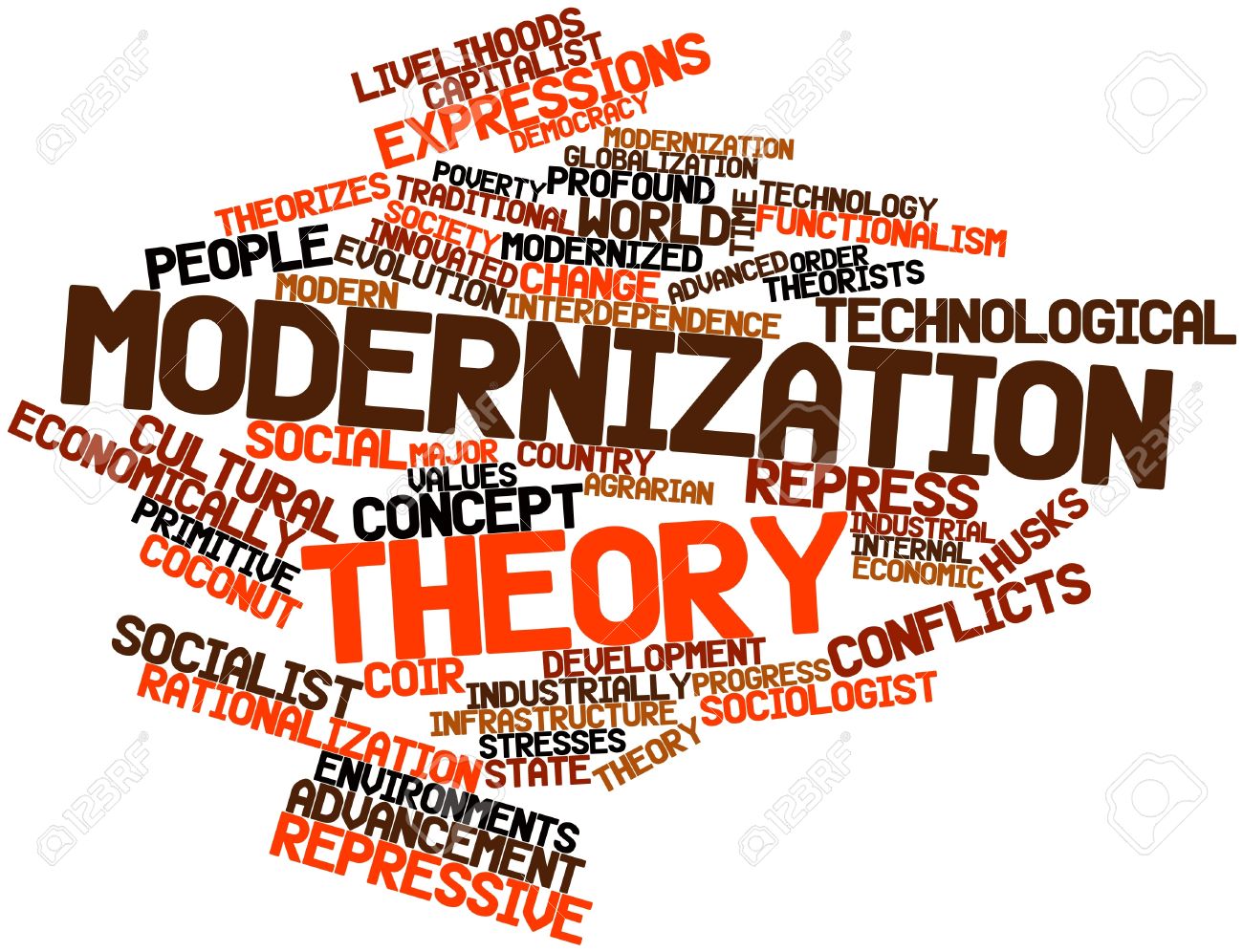
The Modernization of Nations
In recent years Historians have often asked whether the best unit for study is a society or a nation, since many questions relating broadly to demography and society cannot be properly addressed within a single nation’s bor ders.
-
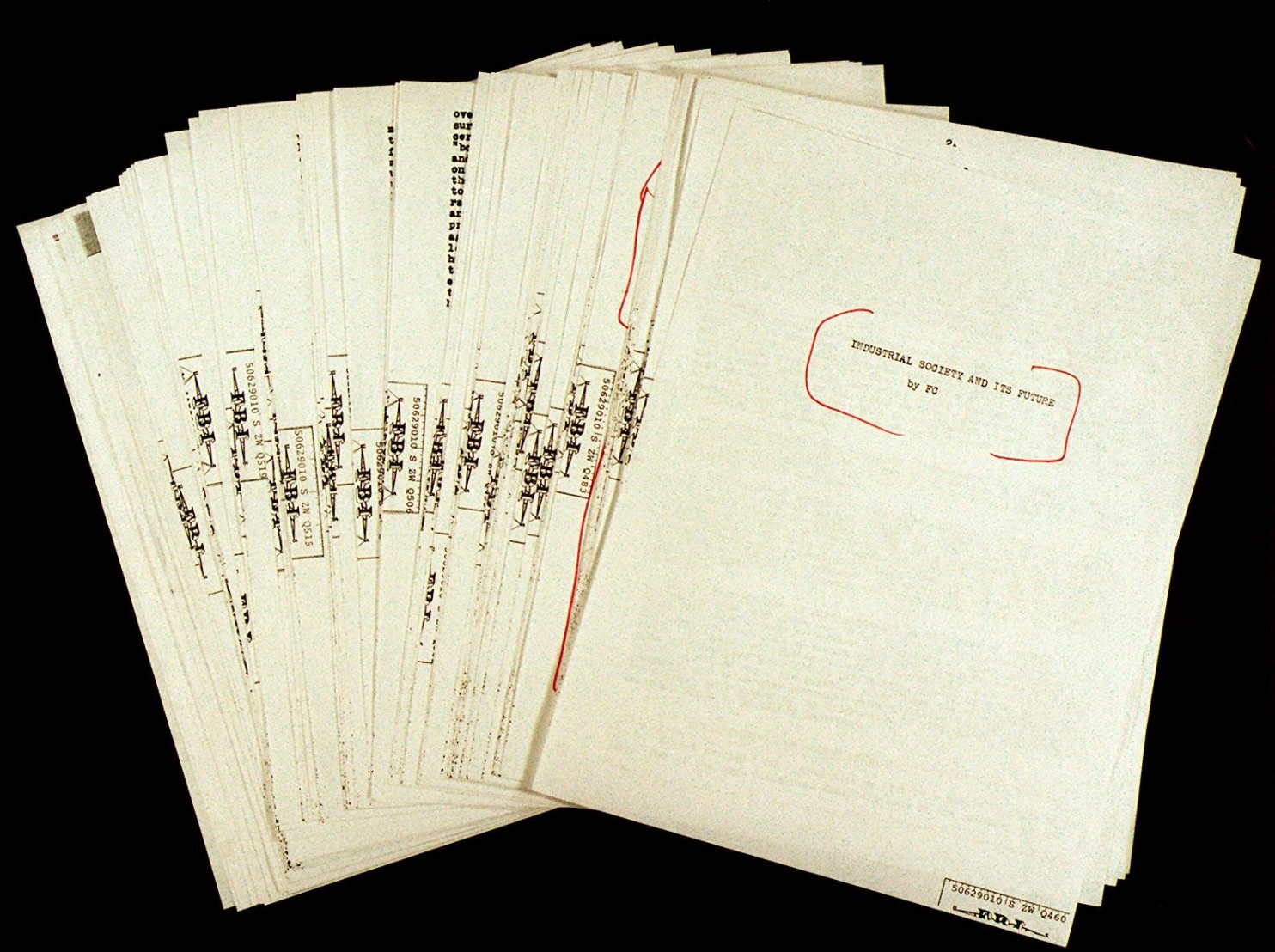
Summary | The Industrial Society
The industrial revolution transformed people’s lives in western Europe, the United States, and elsewhere. Most historians agree that from the 1820s to the 1890s industrialization proceeded in four stages mechanization of the textile industry, metals, chemicals, and finally electricity. Each stage led to the next. Britain held the lead in the early industrial revolution from…
-
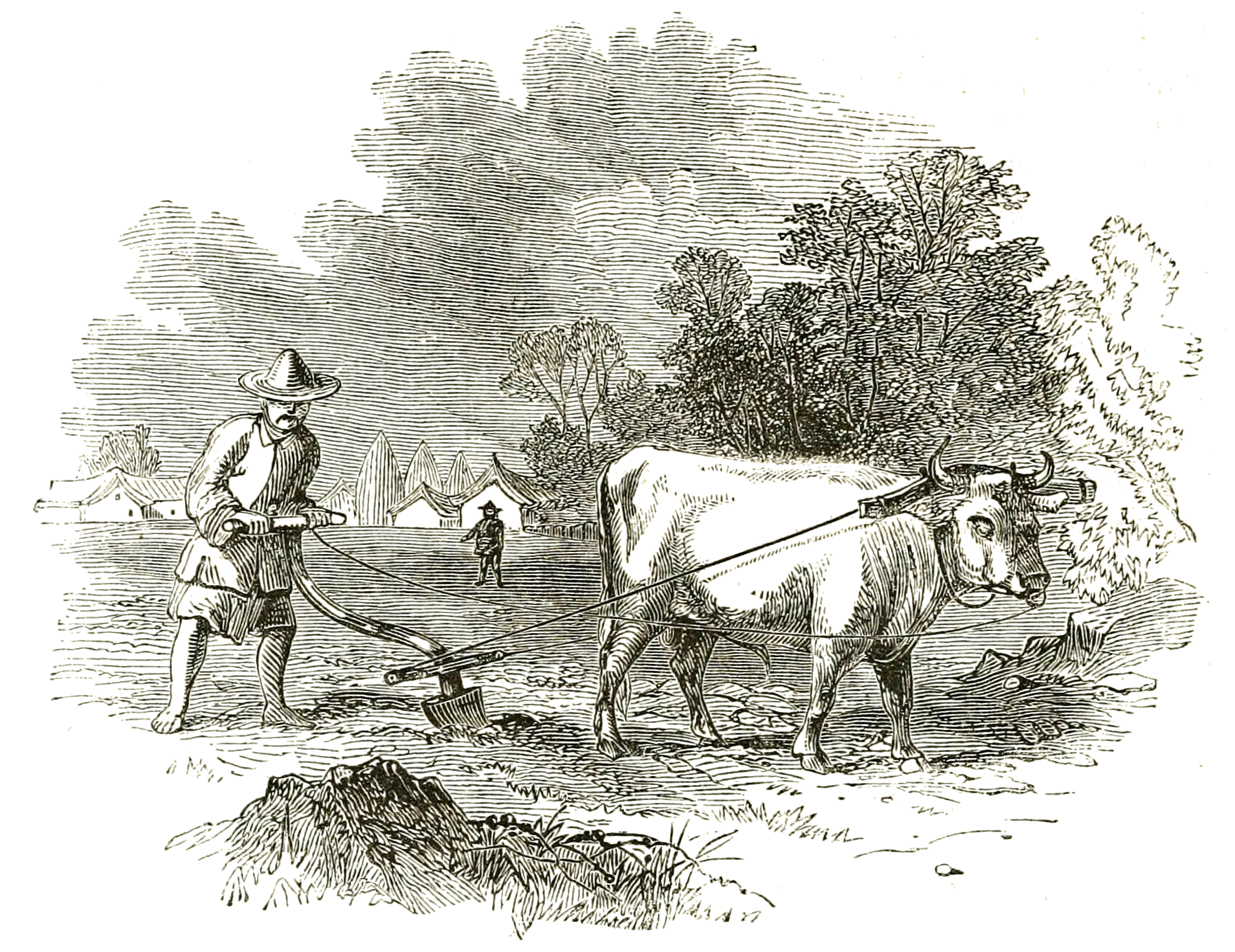
The Other Arts in Industrial Societies | The Industrial Society
An age that had mastered the industrial arts so well produced monumental statues, of which the most famous was Liberty in New York harbor, the work of the French sculptor Frederic Bartholdi (1834-1904), a gift from the Third French Republic to the American republic.
-
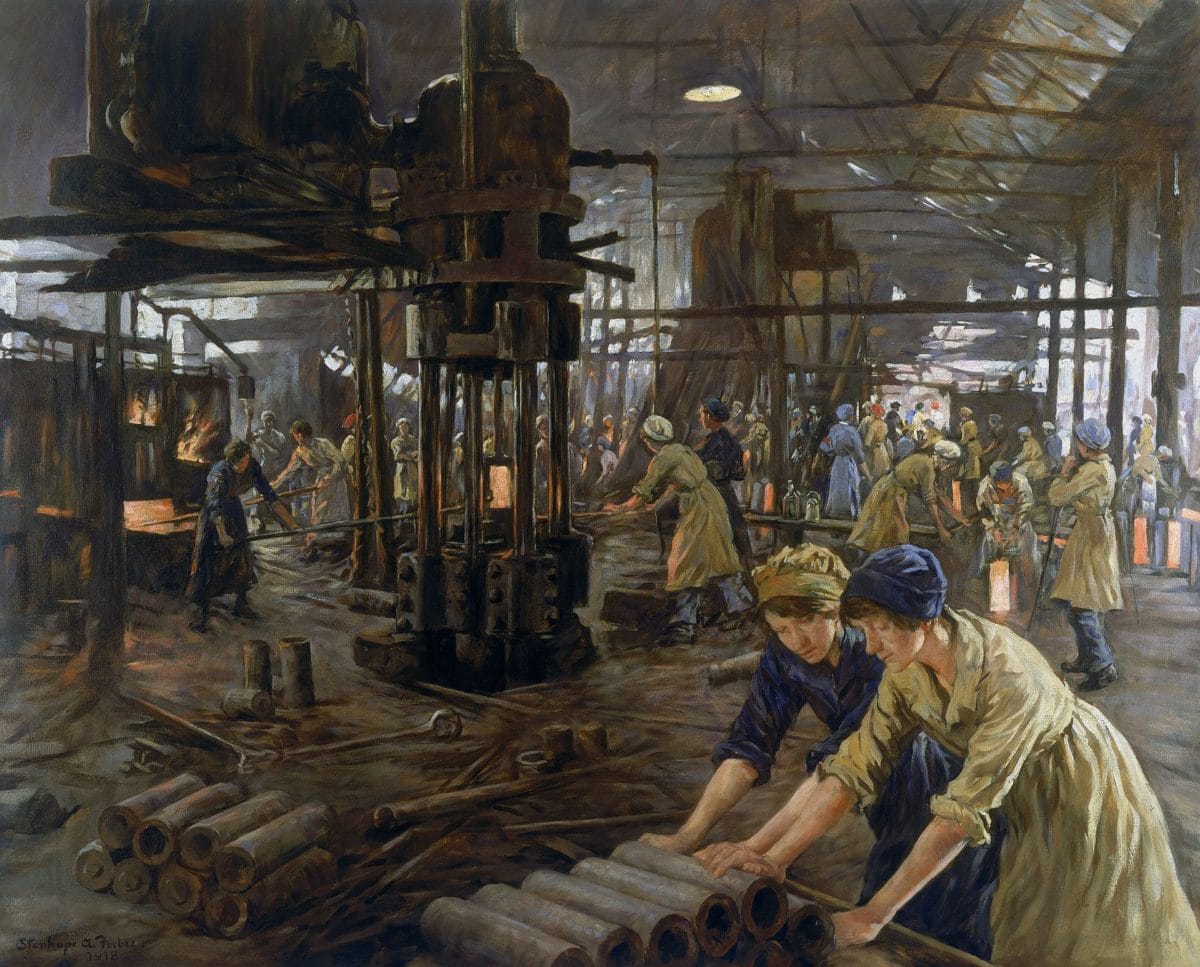
Painting in Industrial Societies | The Industrial Society
In the nineteenth century the painter faced a formidable competitor in depicting the physical realities of nature and life—the photographer. After Louis J. M. Daguerre (1789-1851) made the daguerreotype commercially possible, the science and art of photography developed until, through the work of the American George Eastman (1854-1932), roll film made it feasible for each…
-
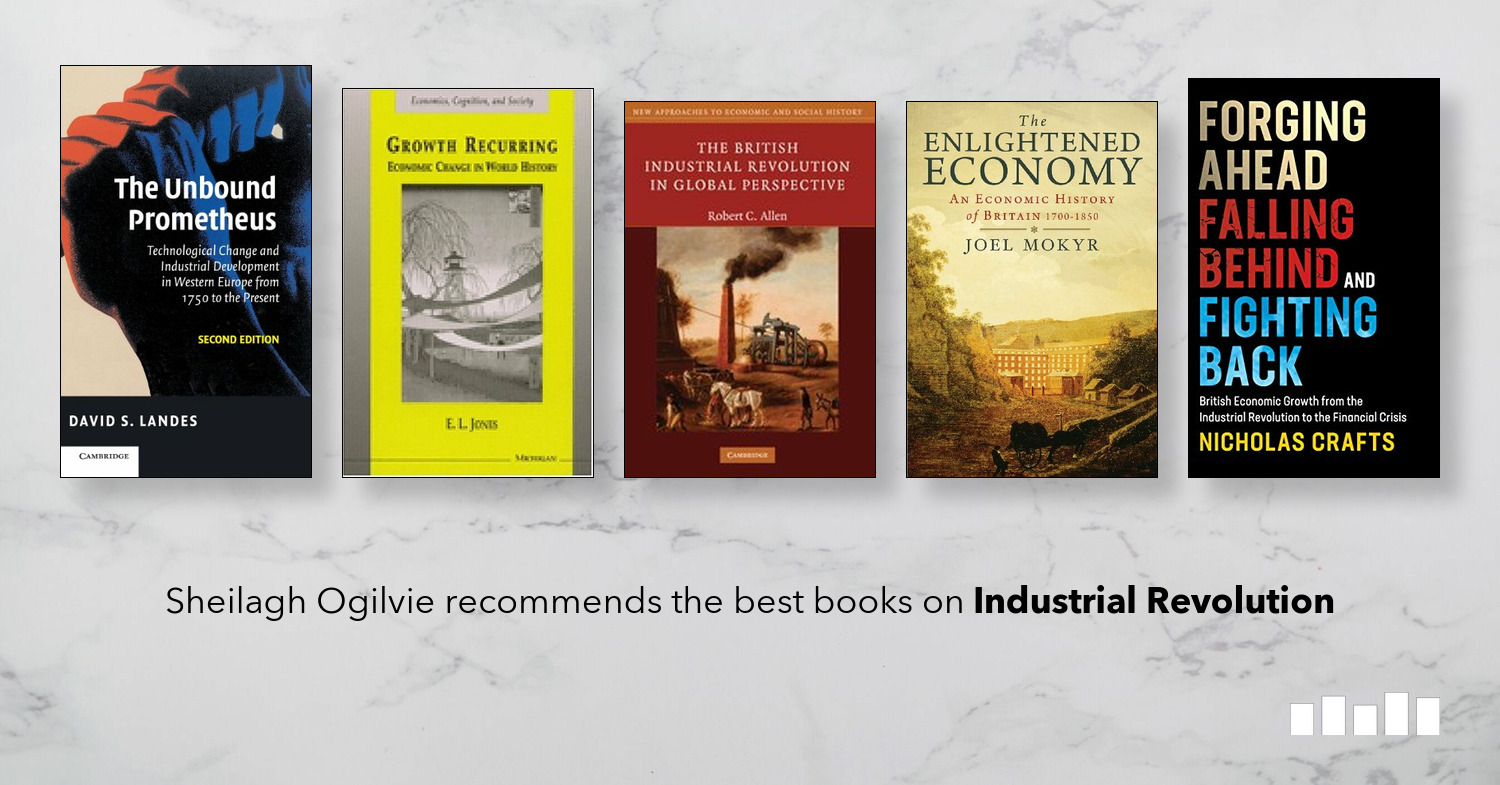
Literature in Industrial Societies | The Industrial Society
In literature the last two thirds of the nineteenth century proved to be a great period for the novel of realism that depicted the problems and triumphs of the industrial society, drawing upon the stylistic canons of the romantics while pursuing starkly realistic themes.
-
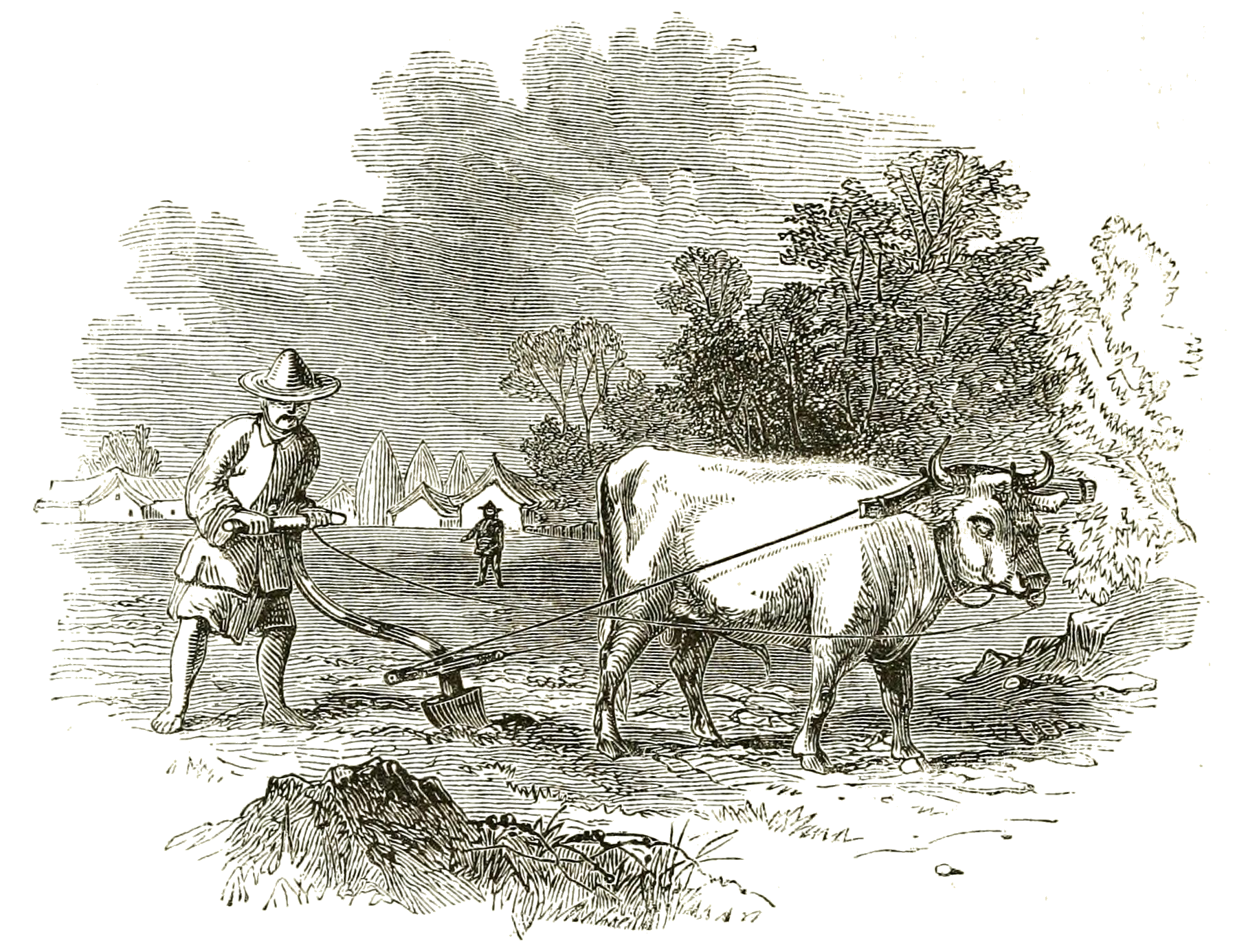
Literature And The Arts In Industrial Societies | The Industrial Society
The scientific and industrial revolutions and the debate over idealism and realism helped to stimulate an explosion of creativity and artistic experimentation that transformed the novel, drama, and the fine arts. The gap between “genteel” writing and the cruder and more vigorous forms was widening because so much important work was produced and encouraged by…
-
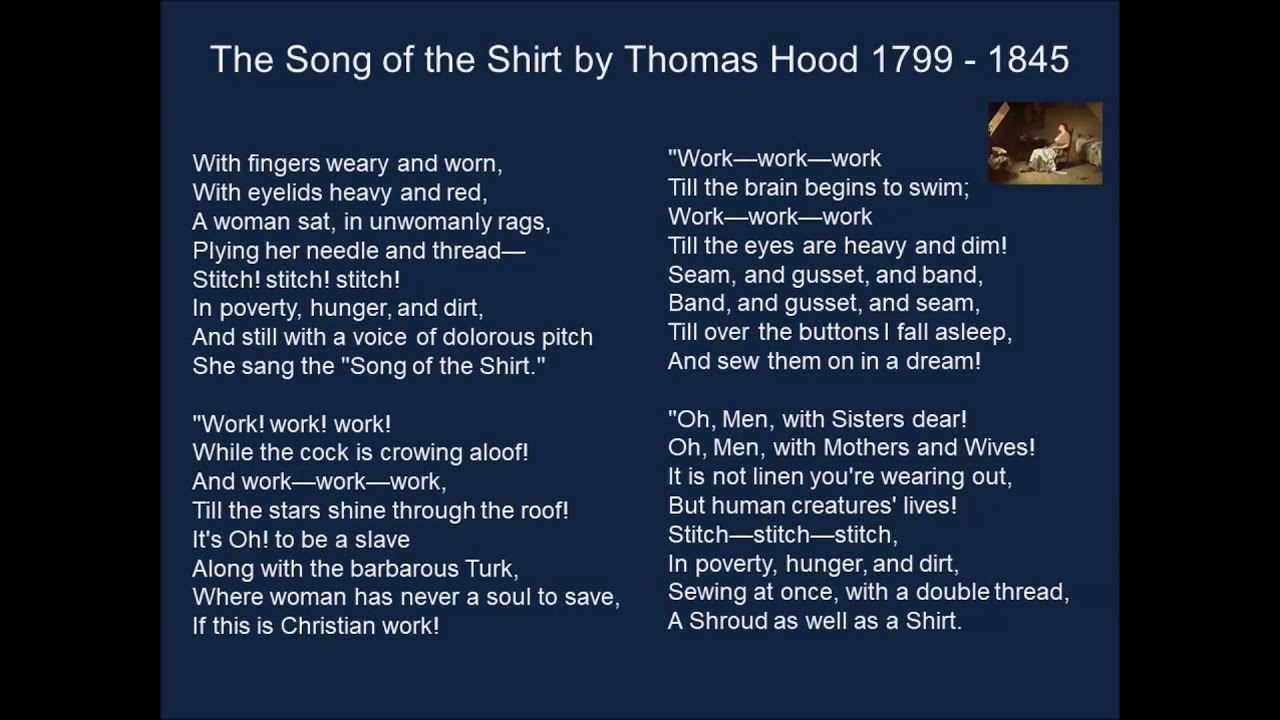
The Song of the Shirt
The Song of the Shirt,” by the minor English poet Thomas Hood (1799-1845), was prompted by a London news report about the arrest of a seamstress for pawning articles belonging to her employer. Paid by the piece, she could earn at the maximum seven shillings a week, on which she was expected to support herself…
-
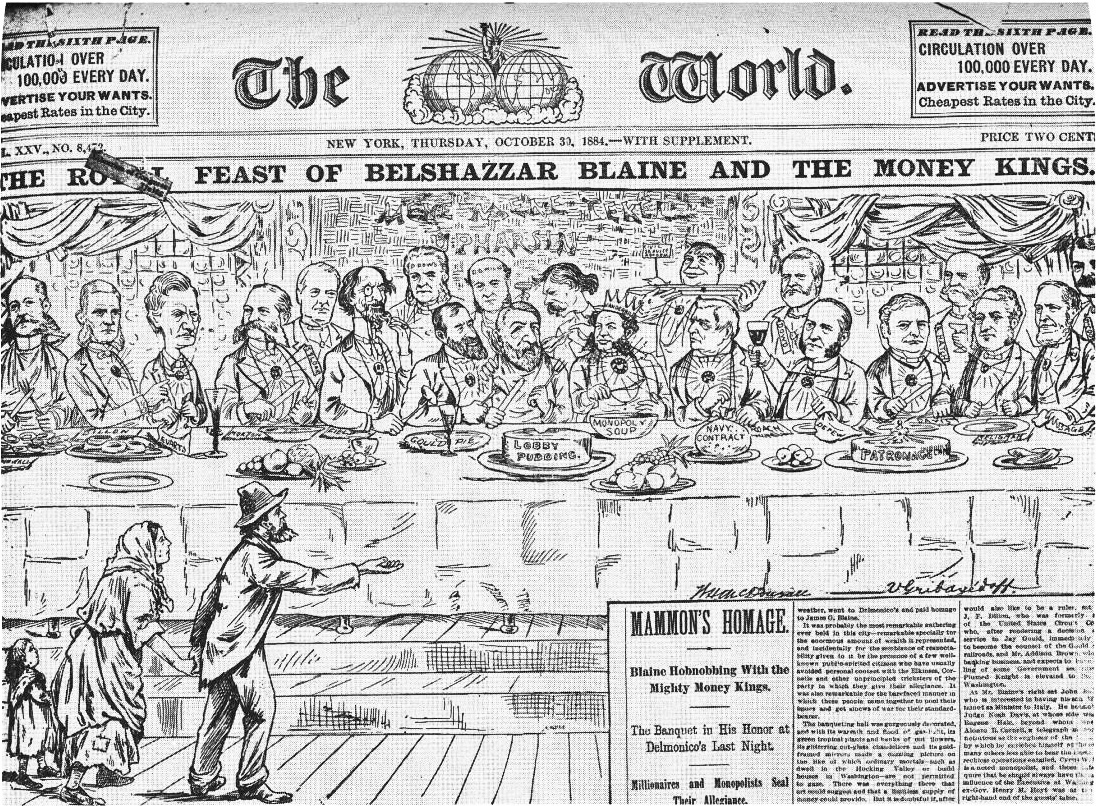
Elitism | The Industrial Society
The German philosopher Nietzsche was representative of the elitist view. The central line of his thinking led to the concept of a new aristocracy—the “higher man” or Ubermensch.
-
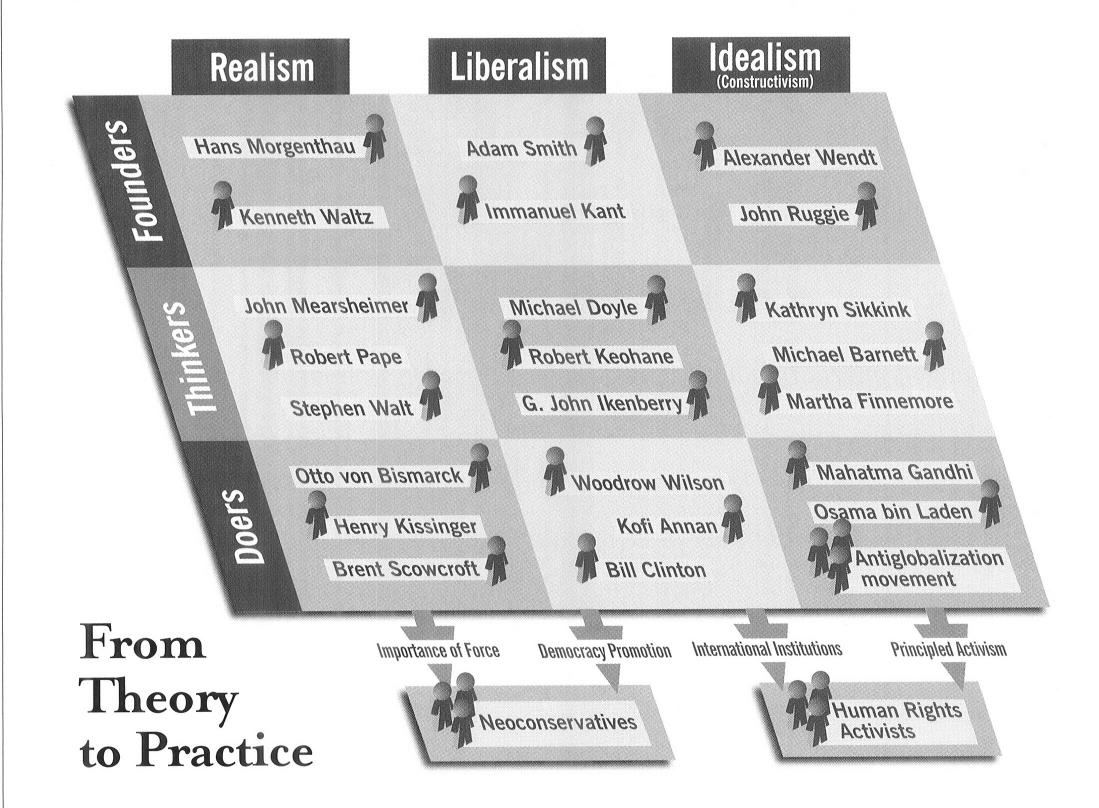
Idealism and Realism | The Industrial Society
The American philosopher William James (1842-1910) summed up the antithesis of idealism and realism by arguing that people are either “tender-minded” or “tough-minded.” The tough-minded are convinced that the world of sense experience is the real world; the tender-minded are convinced that the world of sense experience is somehow an illusion, or at any rate…
-

Comte and Positivism | The Industrial Society
It was Auguste Comte (1798-1857) who coined the term positivism. His recommendations for bettering the human conditions retained some of the utopian and messianic qualities of Saint-Simonian teachings. Comte applied the term positivist to the third stage of humanity’s attitude toward the world. First, in the infant period of history, humanity was in the theological…
-

Racism | The Industrial Society
By far the commonest way out of the dilemma facing the Social Darwinists lay in the notion that the struggle for existence really goes on among human beings organized in groups—as tribes, races, or national states.
-
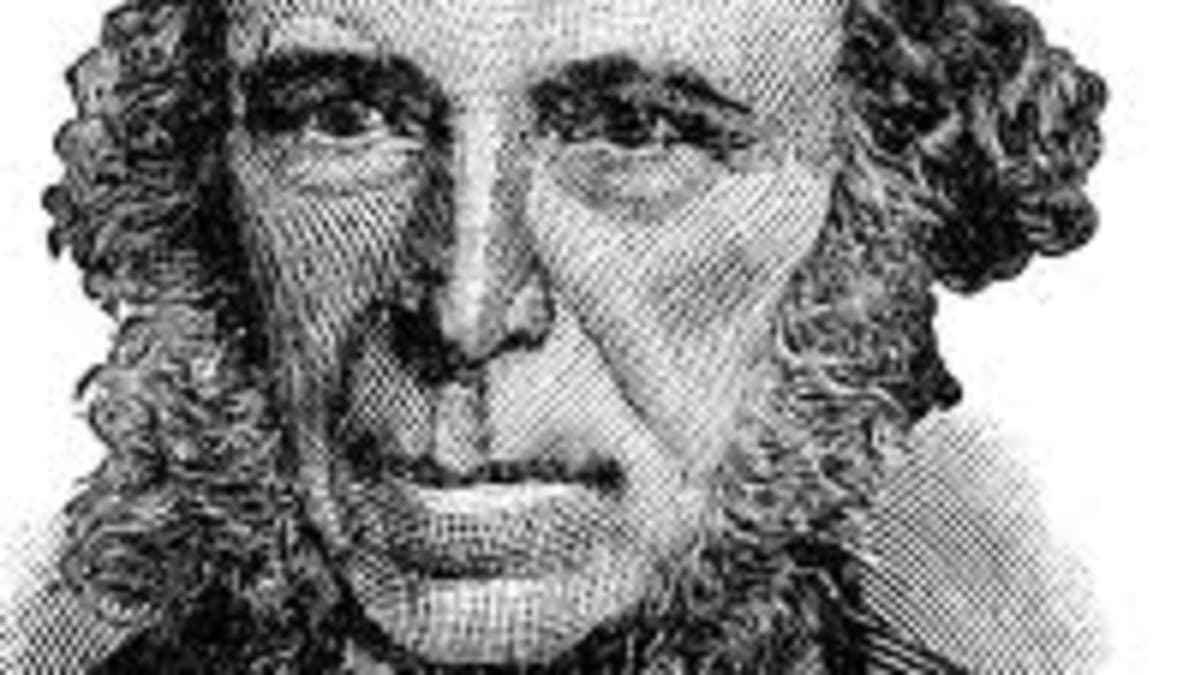
Social Darwinism | The Industrial Society
This theological conflict had pretty well run its course by the beginning of the twentieth century. More important in the long run was the use made of some of Darwin’s basic concepts in debates on matters moral, economic, and political. The blanket term Social Darwinism covers these transfers of ideas from biology to the social…
-

Darwinism, 1859-1871 | The Industrial Society
It was a revolutionary new theory in biology that most transformed thought, and thus action. In 1859 there was published in London Charles Darwin’s On the Origin of Species by Means of Natural Selection. It rested in the study of natural history, the long record of the hundreds of thousands of years of organic life…
-
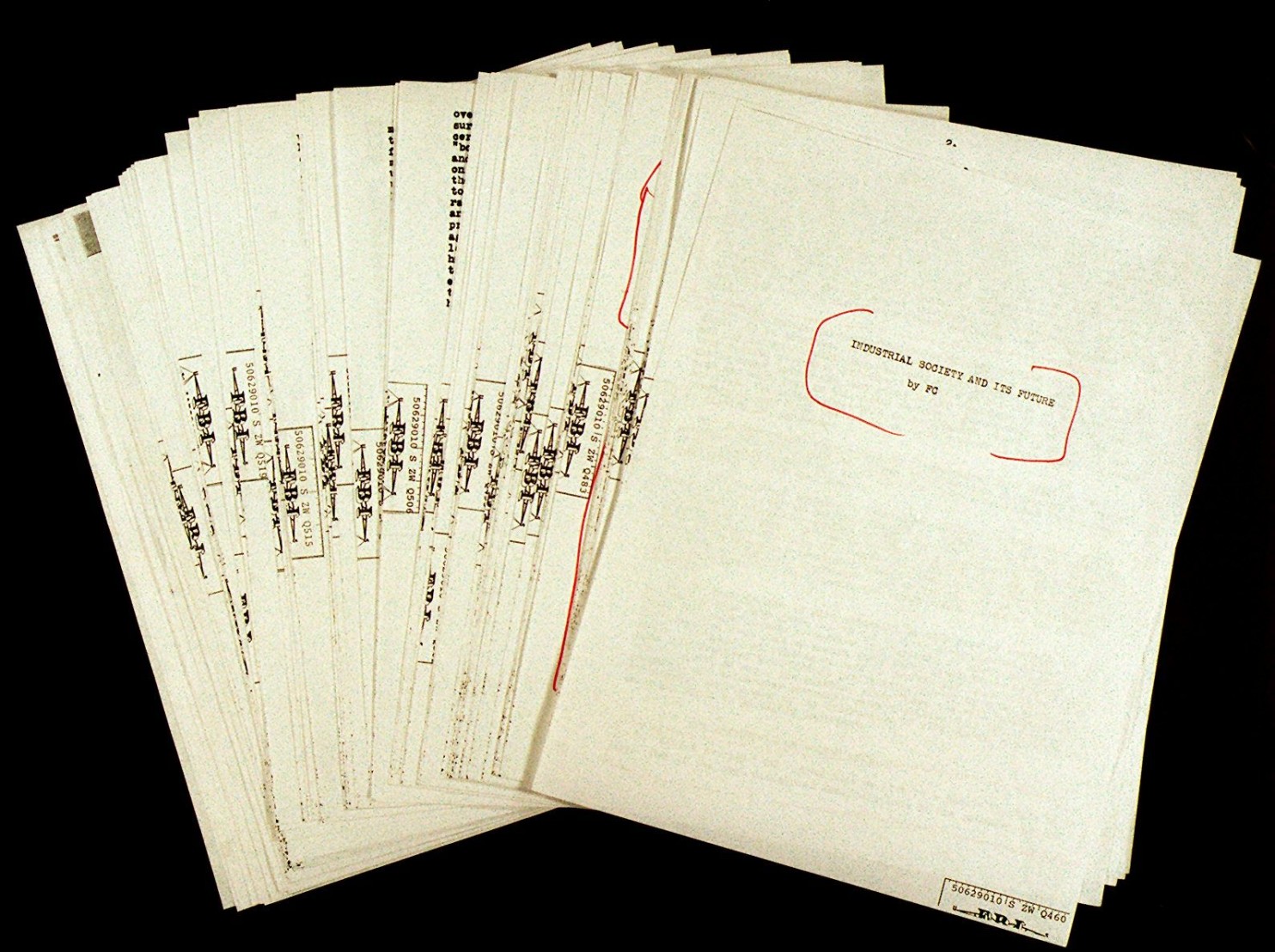
A New Age of Science | The Industrial Society
The telegraph, the submarine cable, the telephone, the massive railroad bridges and tunnels, and the high-speed printing press not only improved communications but also demonstrated the practical utility of science.
-
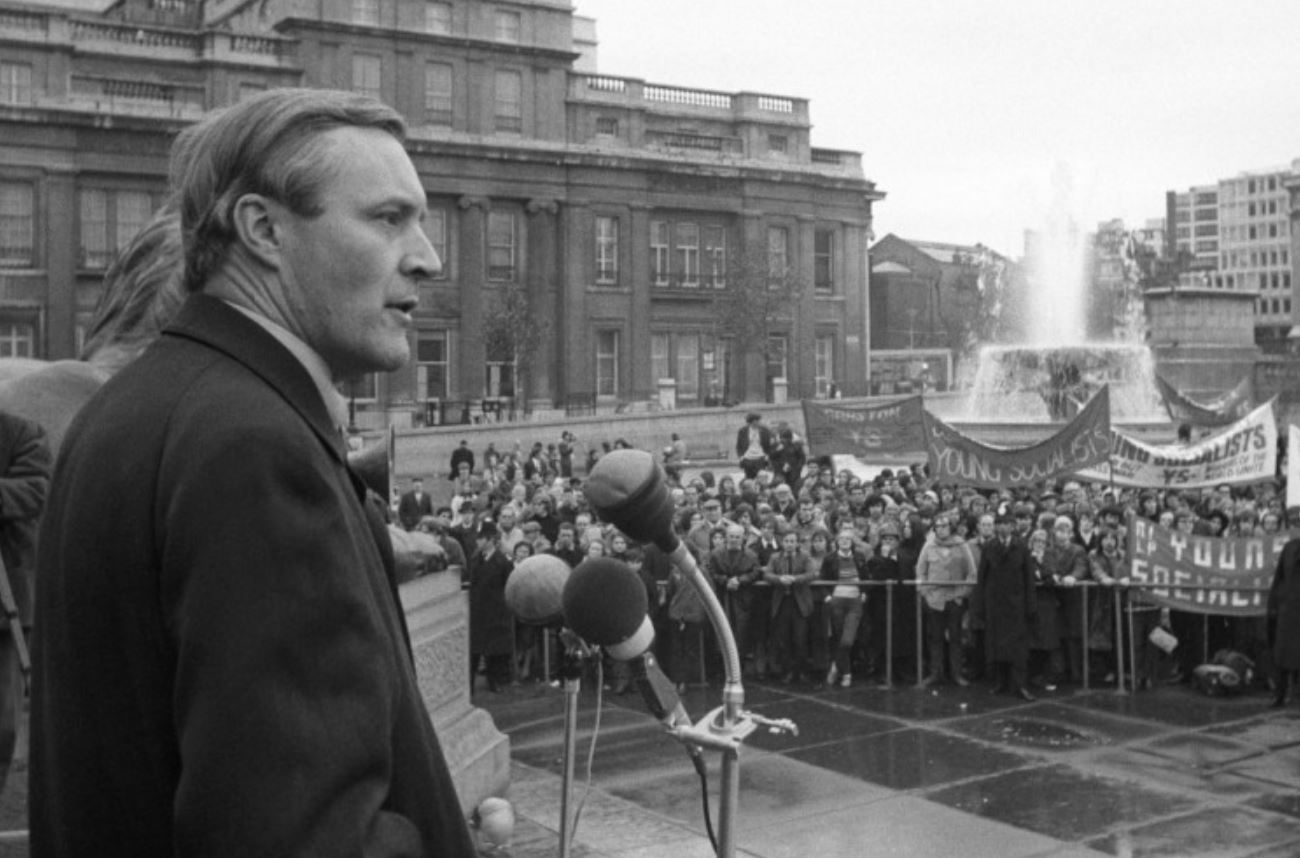
Christian Socialists and Christian Democrats | The Industrial Society
Still other efforts to mitigate class antagonisms came from the Anglican and Catholic churches. In England the Christian Socialists urged the Church of England to put aside theological disputes and direct its efforts toward ending social abuses.
A History of Civilization
